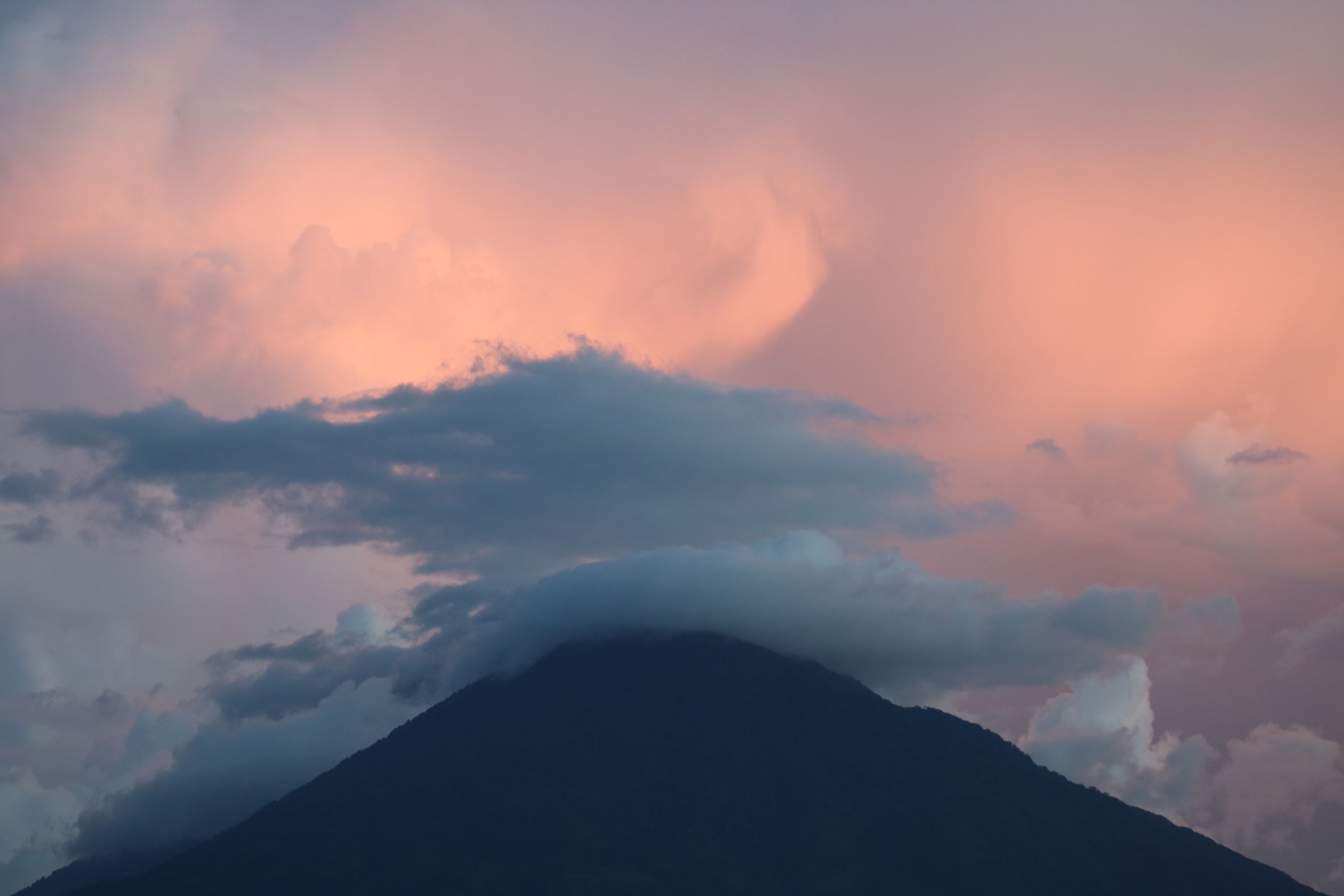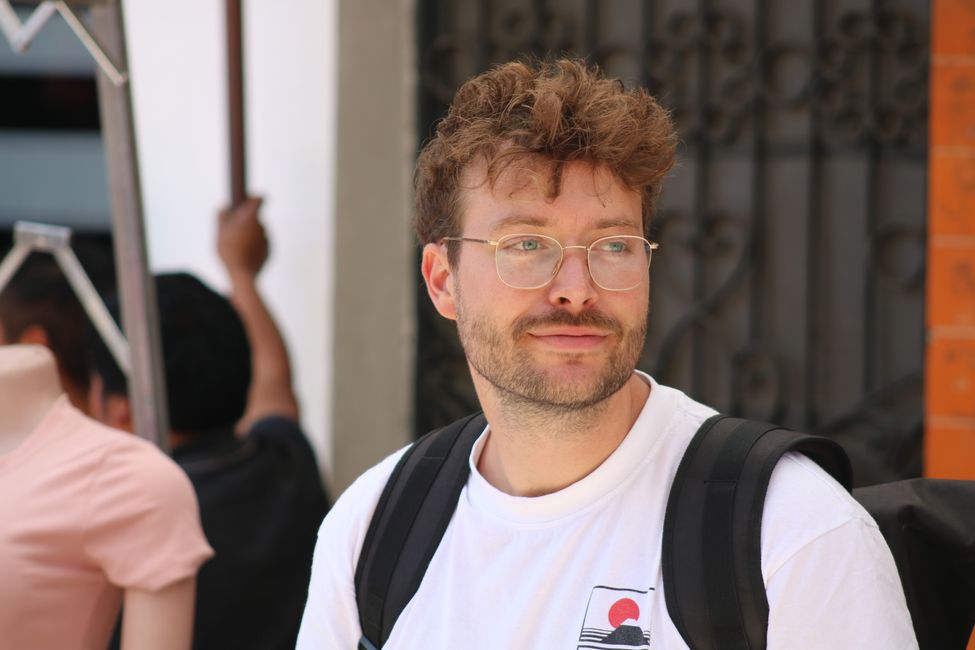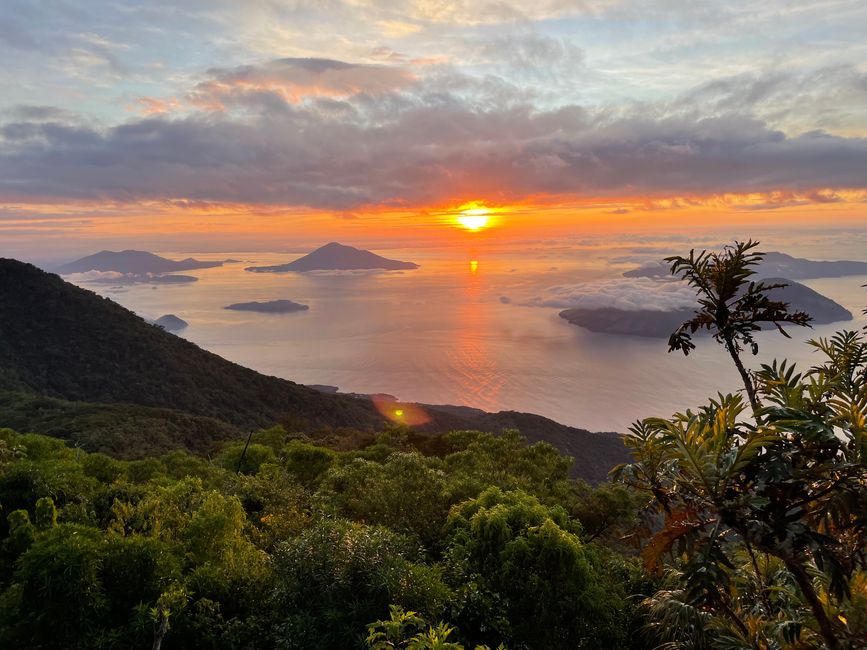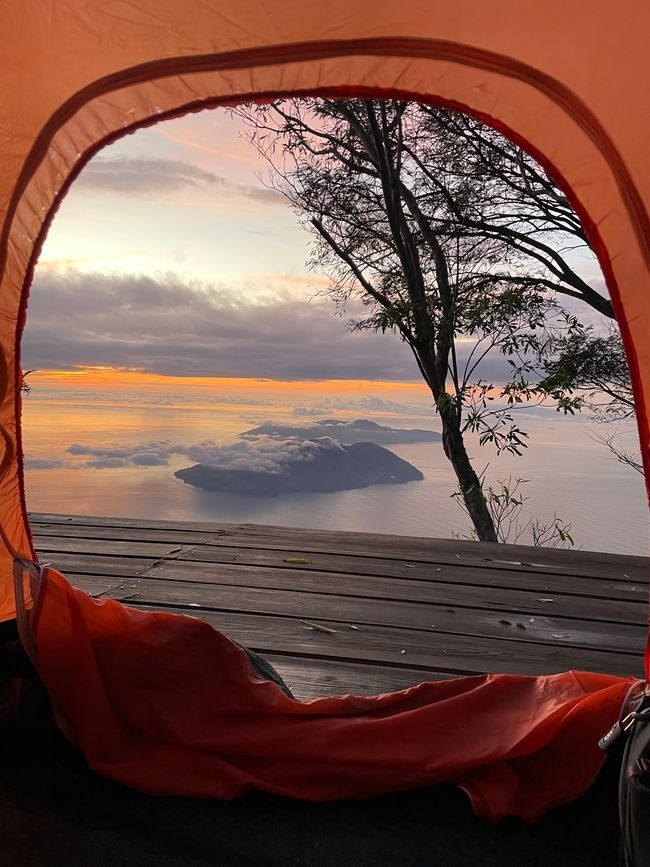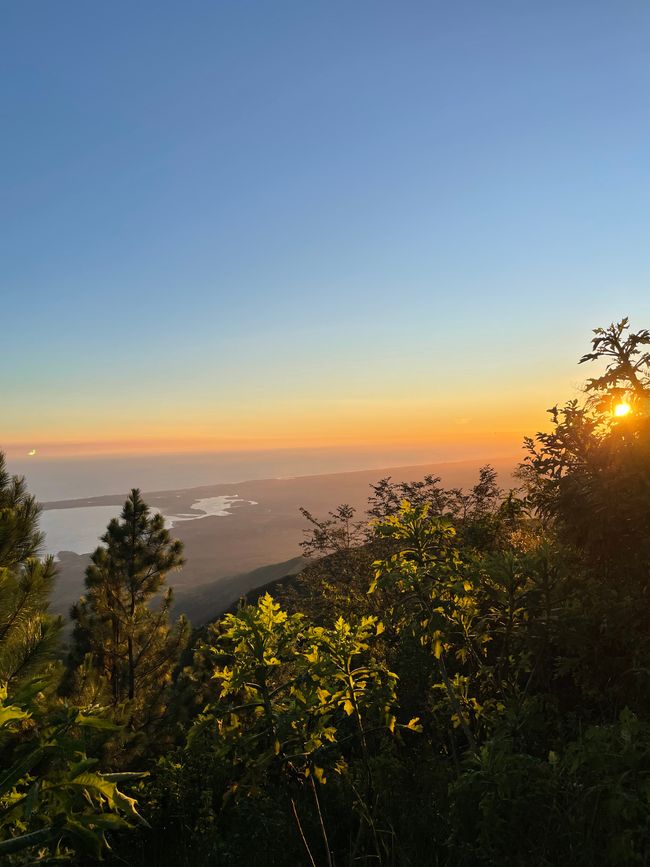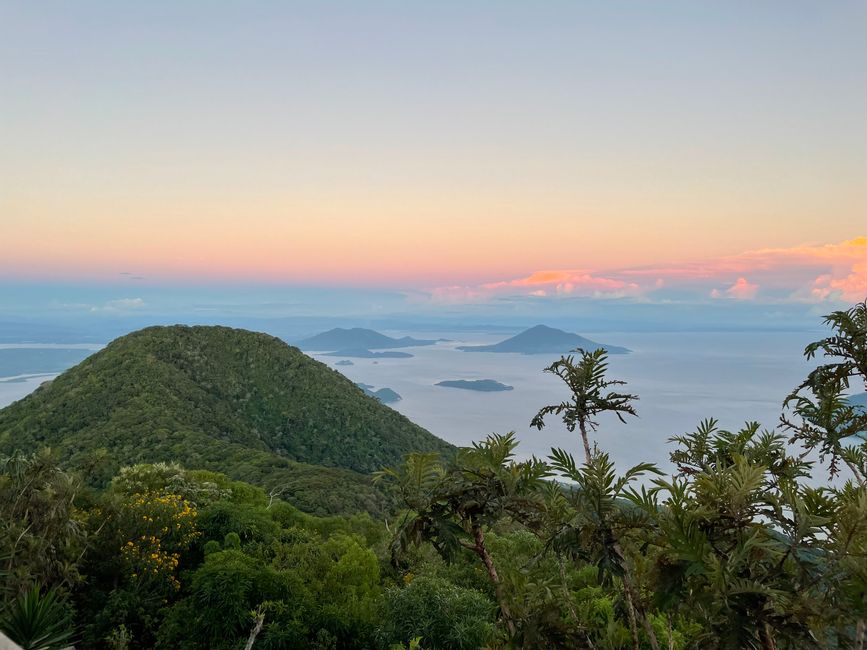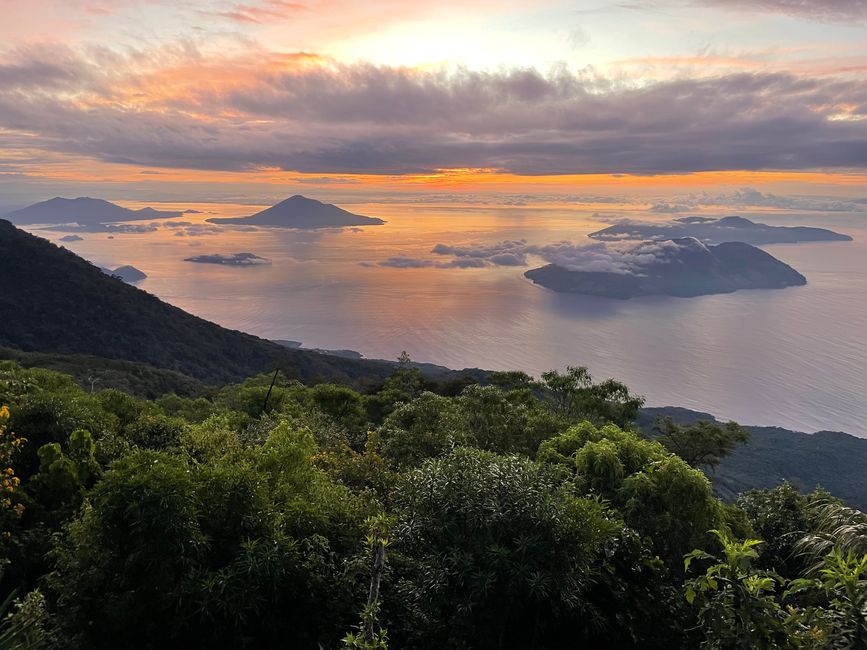El Salvador 🇸🇻
Publié: 05.11.2022
S'inscrire à la Newsletter
El Salvador 🇸🇻
The rugged untouched Central America
Not on our travel itinerary and then one of my favorites. Milena and Tara and I decided to fly from Mexico to El Salvador. El Salvador means 'The Savior' in English and is known as 'El Pulgarcito' (the little thumb) in Central America. This place is said to have even fewer tourists and superb surf spots. And that's exactly how it was! A country the size of Hessen surprised and enchanted me with a scenery that I had imagined from Central America. Few tourists, volcano beaches, good waves, pupusas to snack on, old cities, a green landscape dotted with volcanoes, and super friendly and helpful people. As soon as I arrived at the airport, I hitchhiked with Roche and Carla for an hour and went straight to the hostel in El Zonte, where Milena and Tino were waiting for me.
El Zonte
In El Zonte, one of the most famous surf spots, although tiny, I arrived and was immediately greeted by a hurricane. I arrived still perfectly dry, stored my things, changed clothes, and then it started raining. I have experienced several rainfalls by now, but this time I could clearly feel the difference with a hurricane. The storm lasted all night. At two o'clock in the night, it became so strong that the rain, since we had our room right on the beach, blew right into the room. Fortunately, we were on the first floor, because everything downstairs was completely flooded. But we didn't even have a door facing the beach, there wasn't even a wall, just a four-meter wide entrance with bed sheets hanging down. So we had to push our already wet beds together in a corner to seek shelter. Coconuts, palm leaves, and even a window flew around. It broke on our stairs. Since I couldn't change anything anyway, I made myself comfortable under the corrugated iron and just slept.
Overall, the waves in El Zonte were quite strong and wild, so I had some difficulties, but I didn't give up and took something away every time. With Milena, we kept motivating each other and overcoming our inner lazy selves.
Other highlights in El Zonte were the little food truck that sold vegetables in the morning at 6:30 am and woke everyone up with its speakers, in case we weren't already awake. In our hostel, there were three large parrots that hung out next to the kitchen. One of them was Lulu, an old parrot lady, who occasionally stole a piece of toast and accompanied the cooking session. On the first evening, I was immediately taken to a pupusa restaurant. This is the national dish of El Salvador. Hand-sized pastries made of rice or corn flour were filled with various fillings. The standard filling was bean paste. In addition, pickled cabbage salad was served, which we always put on top of the pupusa and then drowned in hot sauce. The locals always open up the pupusa and put the salad in. I prefer the first option more.

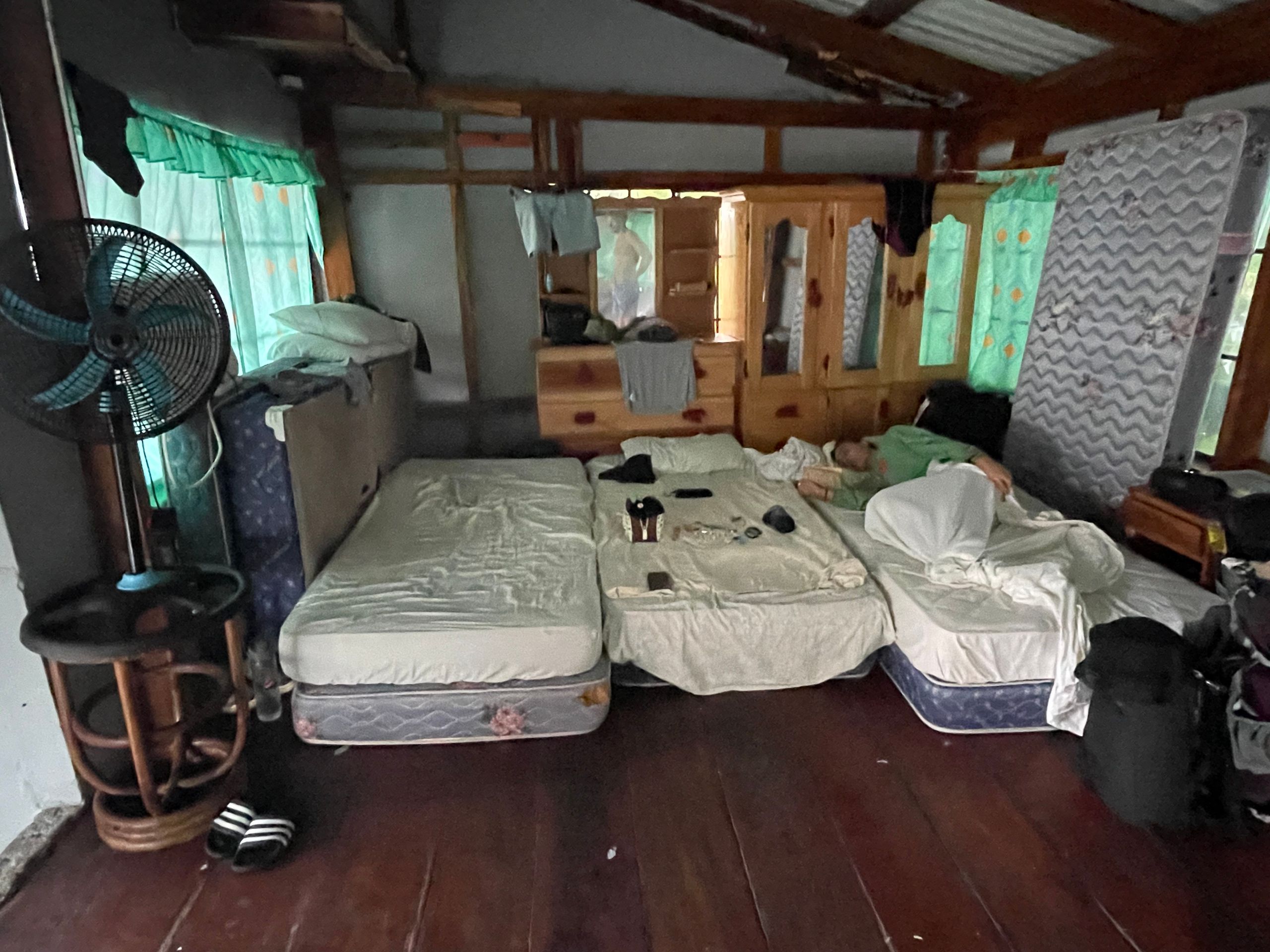
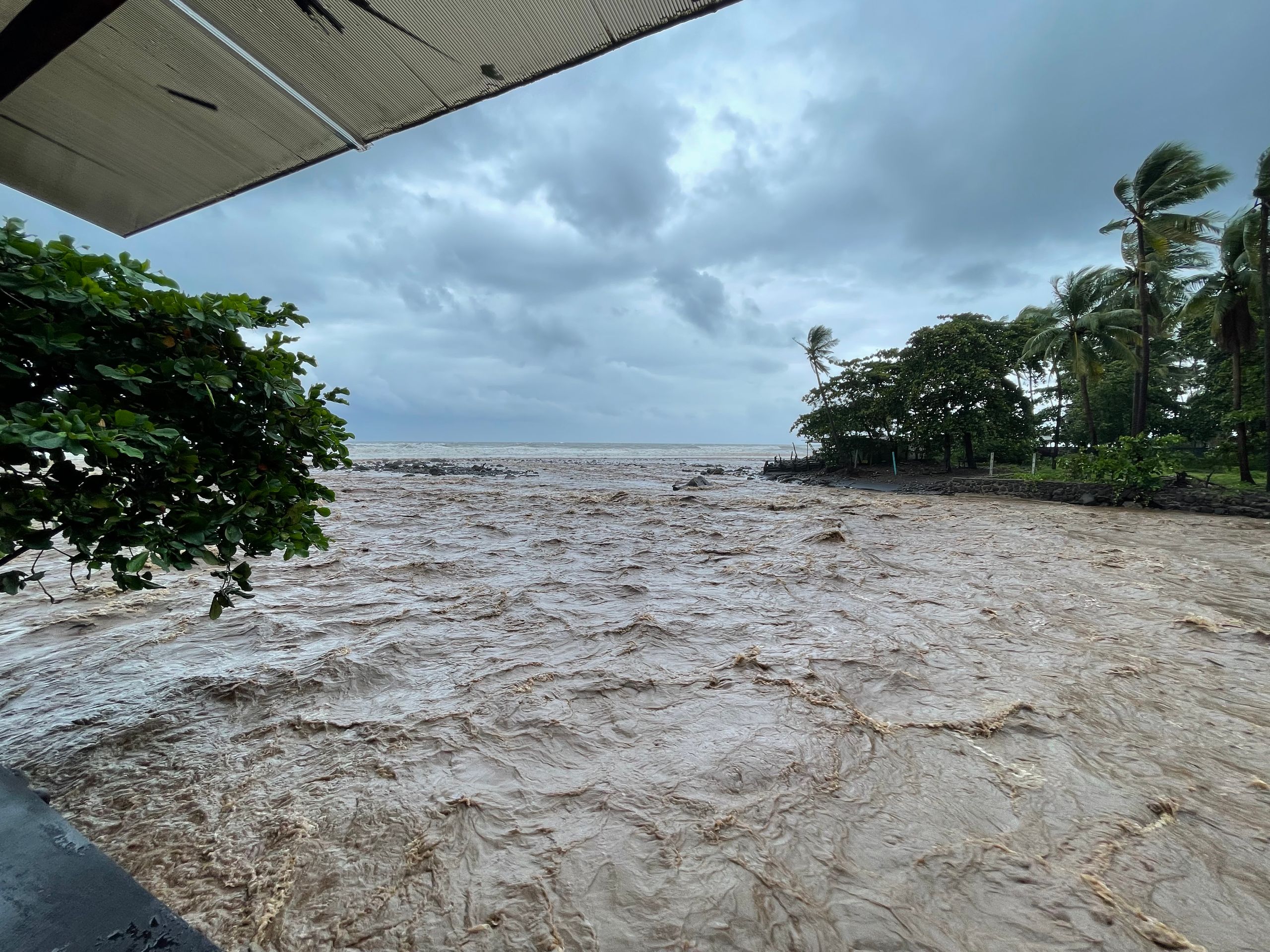
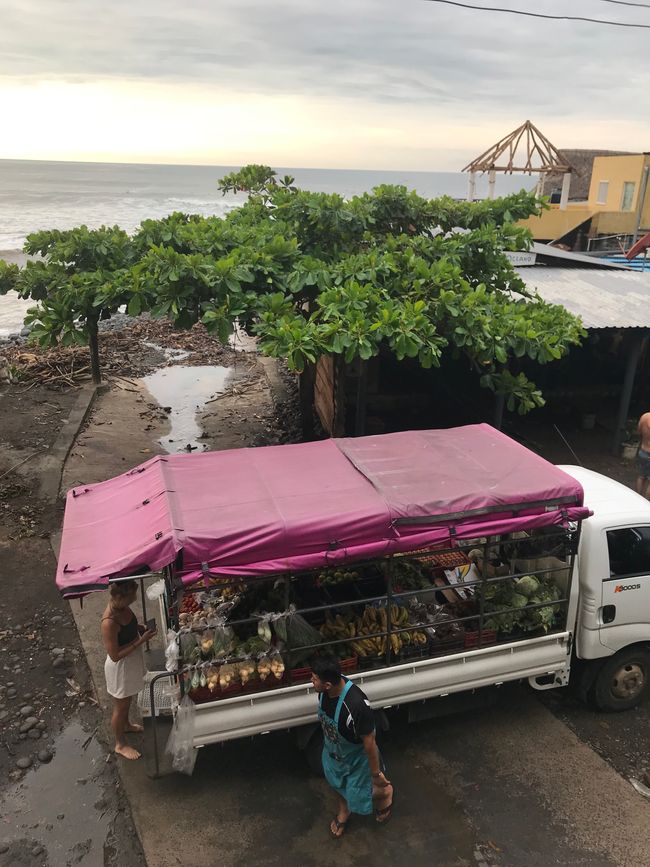

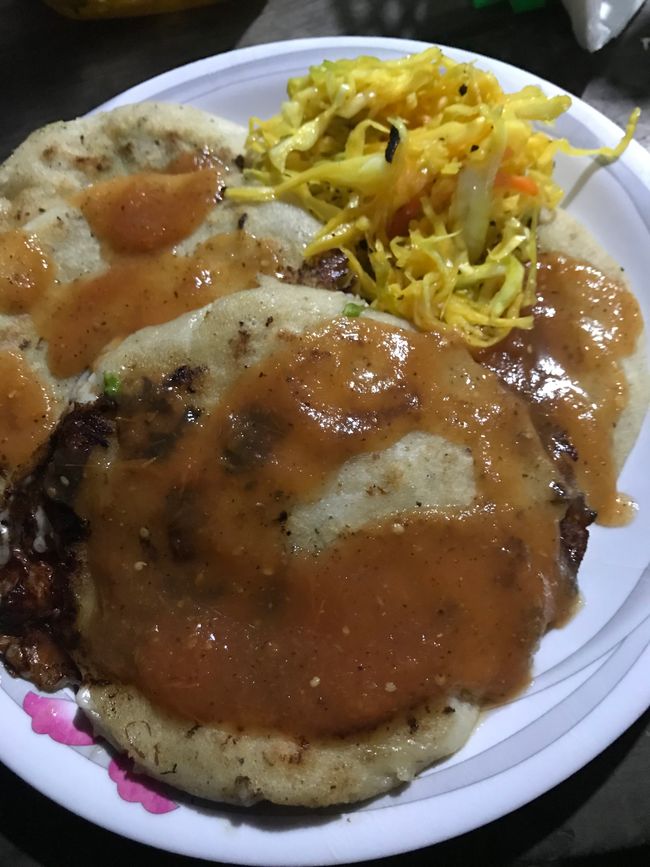
El Tunco, La Libertad, and San Salvador
The next day we went from El Tunco to La Libertad and then to San Salvador, the capital, where Tino and I visited a church and a market. We were really the only tourists we saw. When we stopped at Burger King for a bathroom break, the completely crowded restaurant turned around. We hitchhiked the entire way again, so we could improve our Spanish skills. On the way back, we stopped in El Tunco again, as I had reserved a surfboard there in the morning. I bought it now. I chose a medium-length one, 7.2 feet. I am super satisfied with it. Maybe it will be sold again in Nicaragua or I'll keep it, we'll see how I feel.
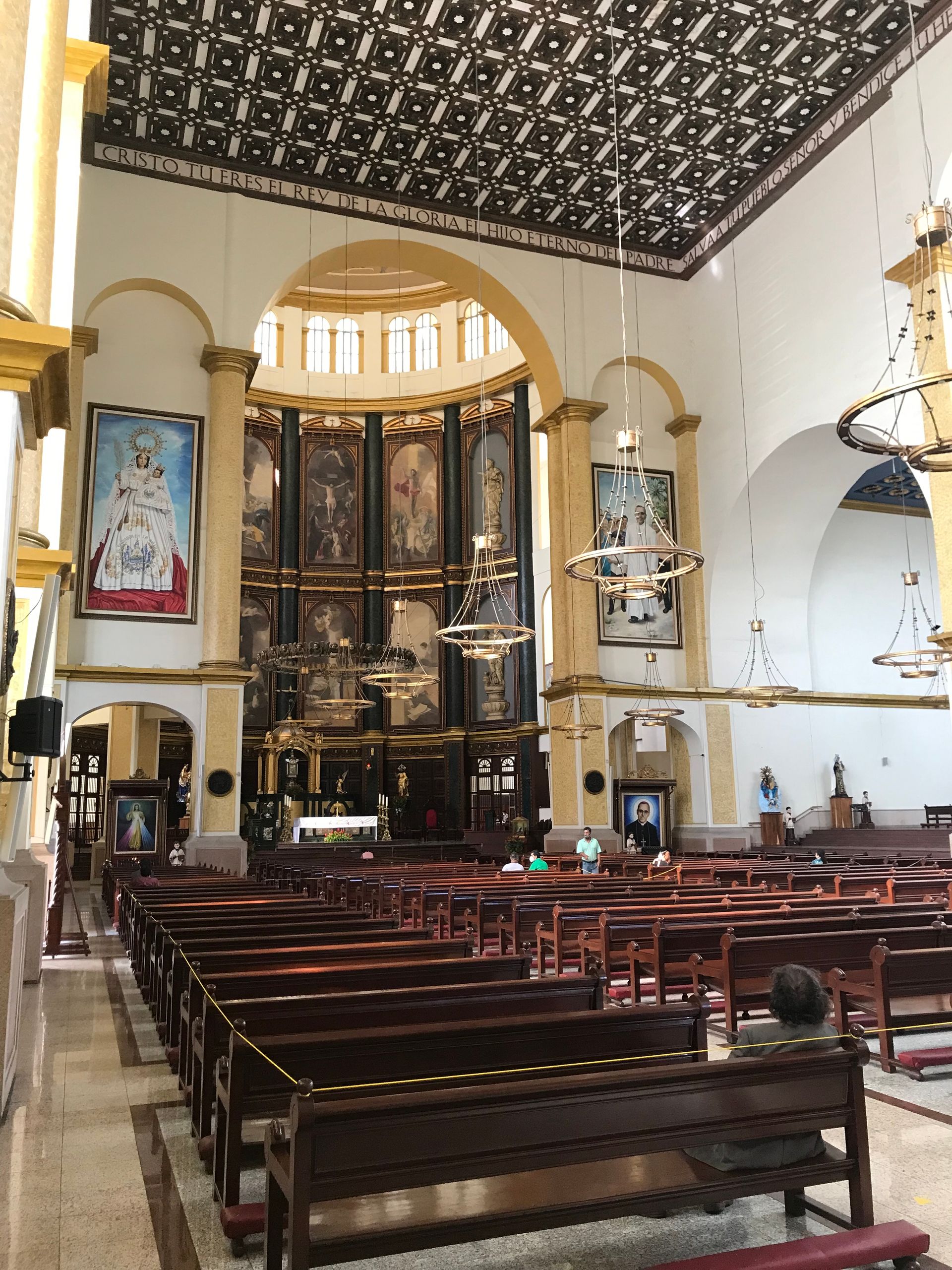
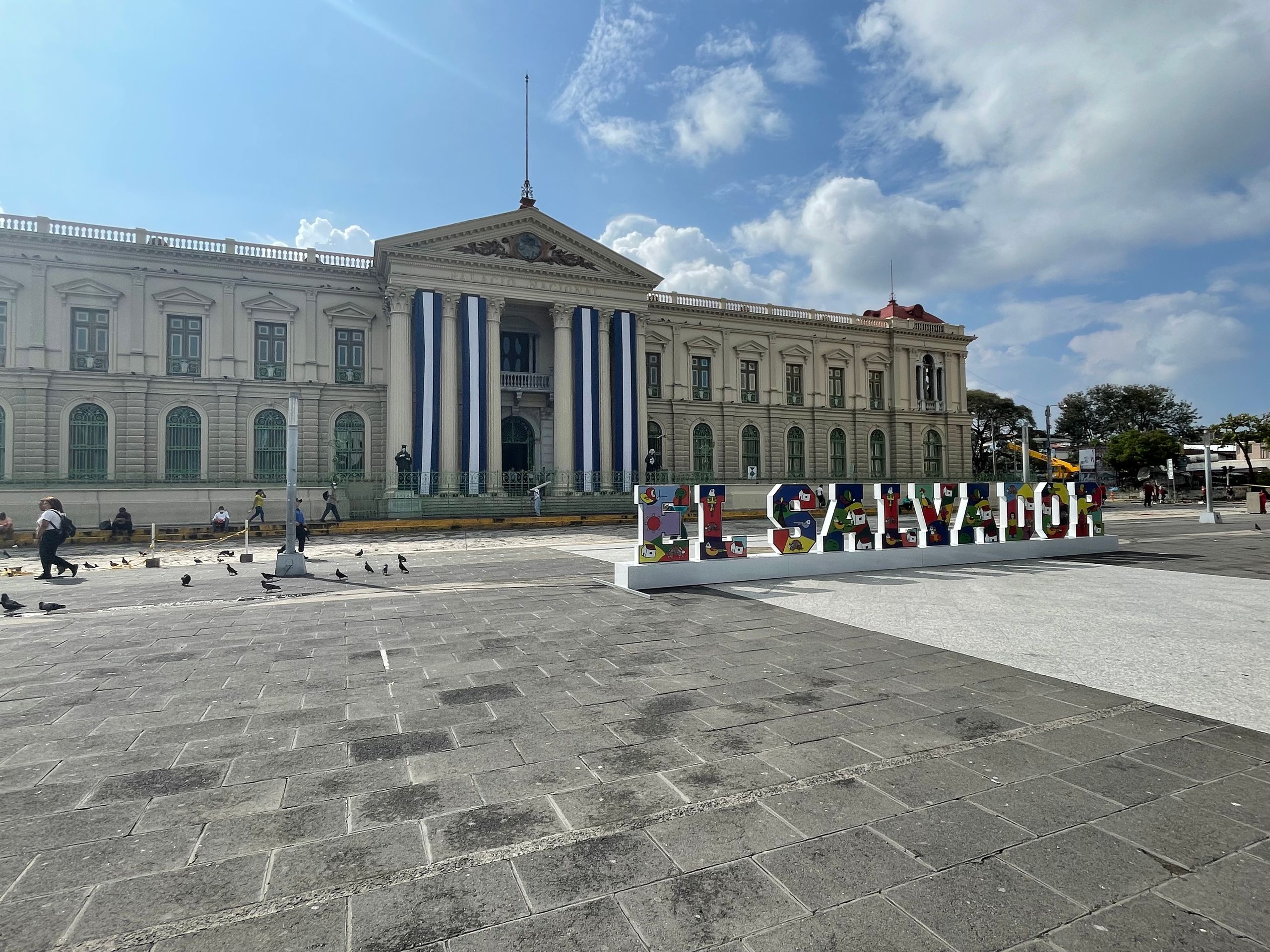
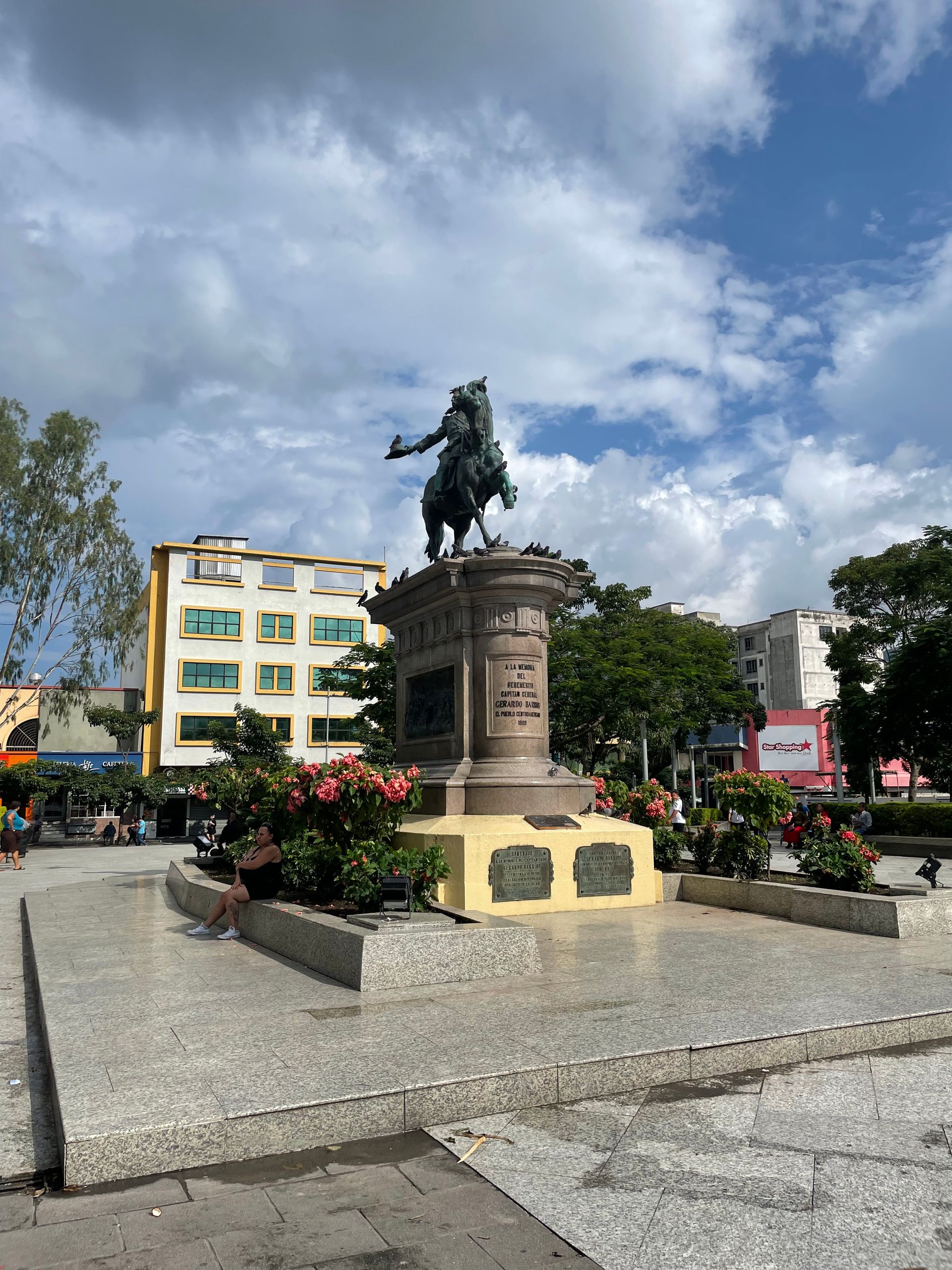
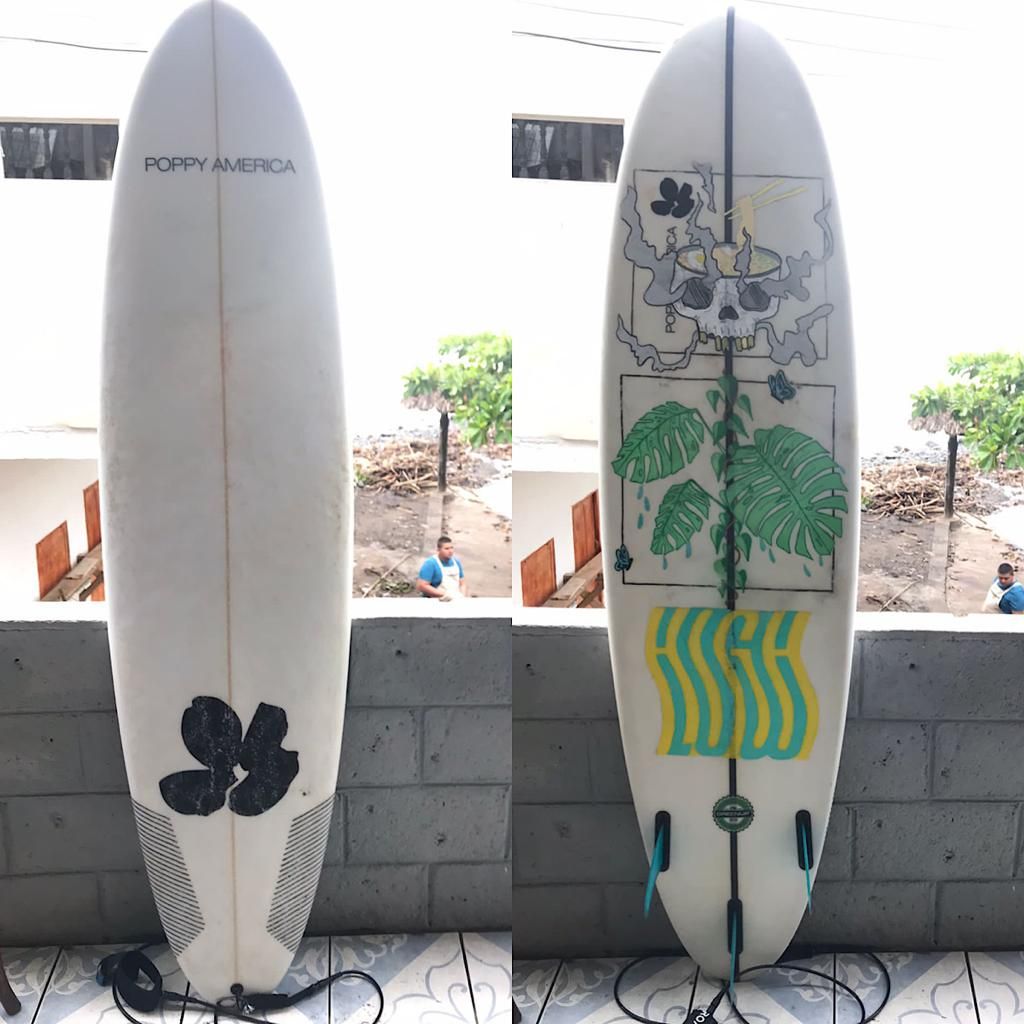
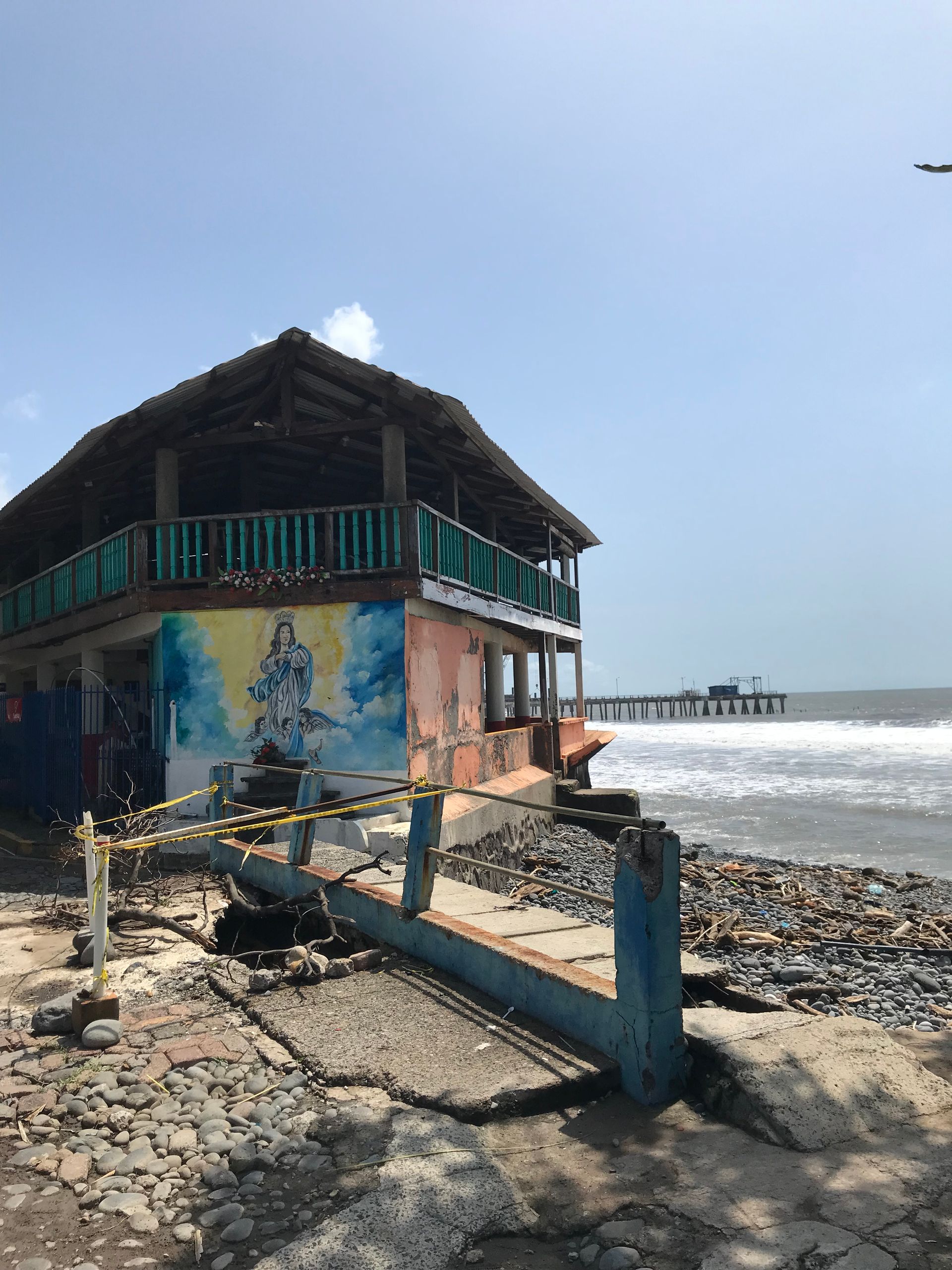
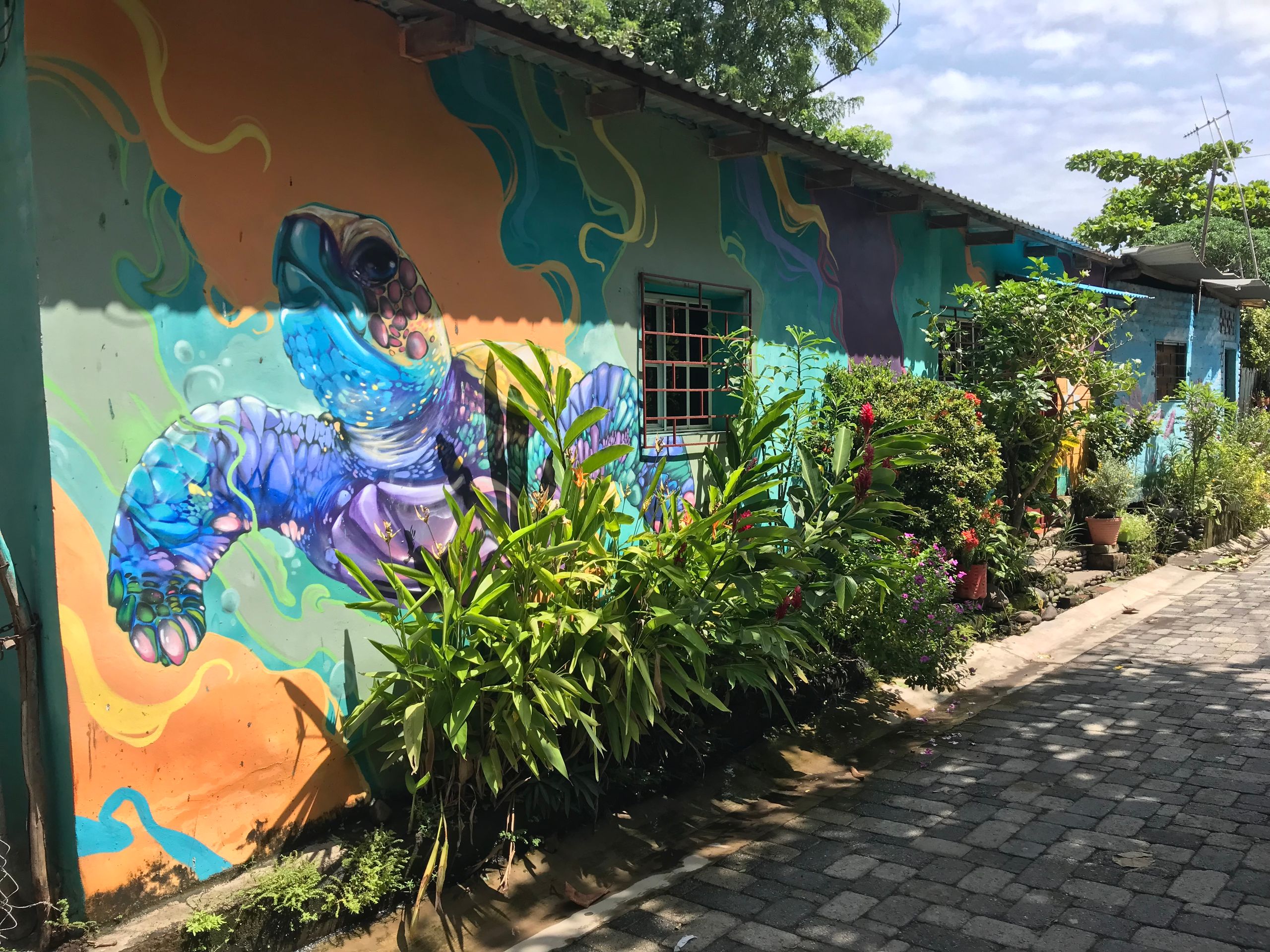
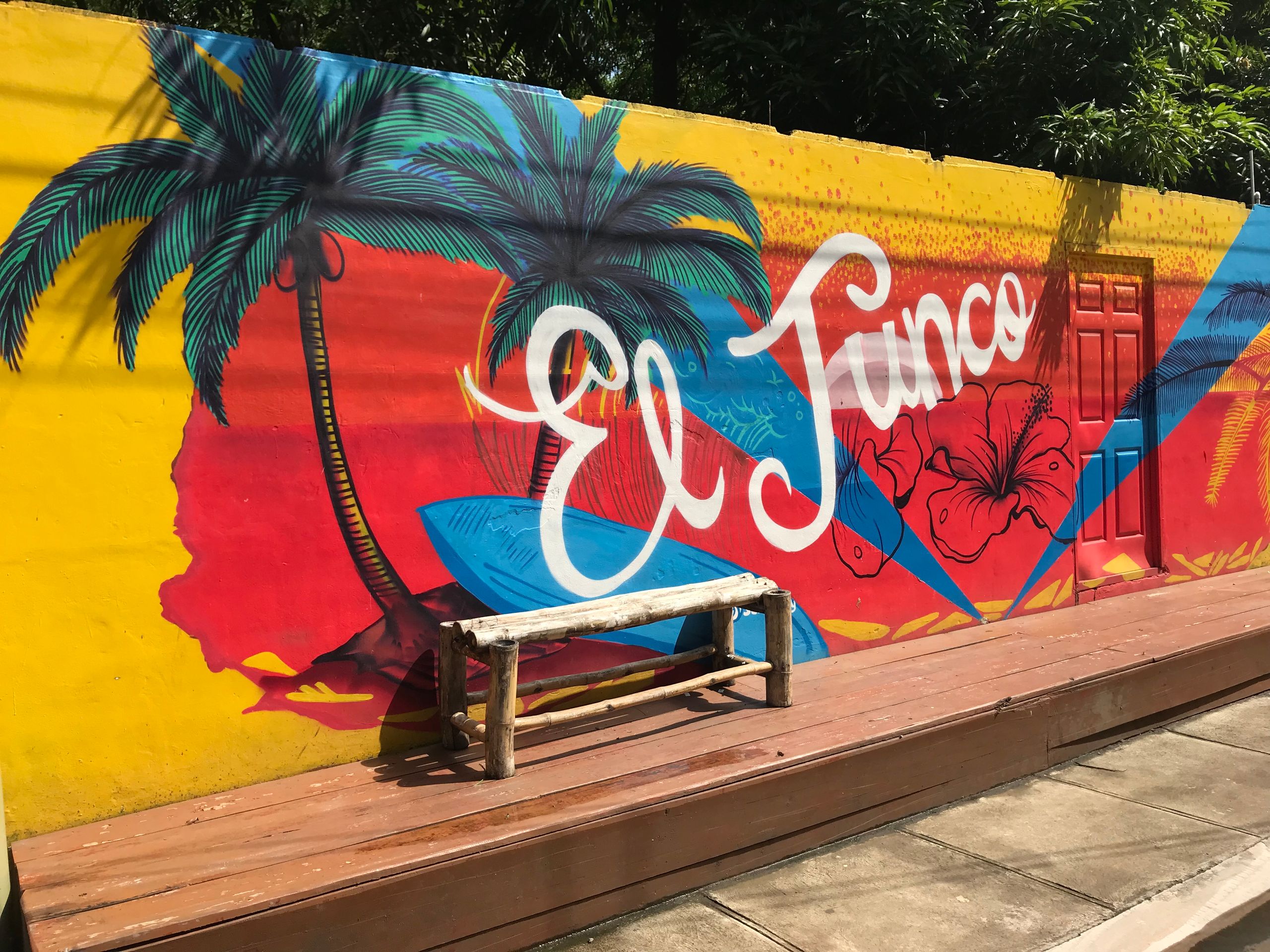
Santa Ana
Next, we hitchhiked to Santa Ana. This is the second largest city in the country, located in the middle of the country, at the volcano of the same name. Here, we hitchhiked too far and had to wait 20 to 30 minutes for the next car to take us back. We also thought that we didn't have to drive through San Salvador, but could take a road through the interior of the country. We were proven wrong. We ended up driving through the capital for about 100 kilometers. We are still learning how to get around the best way while hitchhiking. Once we arrived, we settled in at Hostal Villa El Campanario. So far, the cheapest hostel for less than €6 per night in a dormitory. This hostel was super labyrinthine and equipped with a cute courtyard. We found our basecamp for our day adventures. From here, one day we set off in the morning to climb the volcano Santa Ana and admire the turquoise lake in the crater. The hike was relatively easy and took three quarters of an hour. Once we reached the top, it was nice and cool again, and we had a little break with a beautiful view. On the way back, we hitchhiked to Lago de Coatepeque. This took forever and since I hadn't eaten since the morning at 7 o'clock, I became hangry and cursed the road construction workers. I finally got my first meal at 3:30 in the afternoon. Rice, a little meat, and salad on the side. This dish is actually served in all Central American countries. Sometimes beans are also served with it.
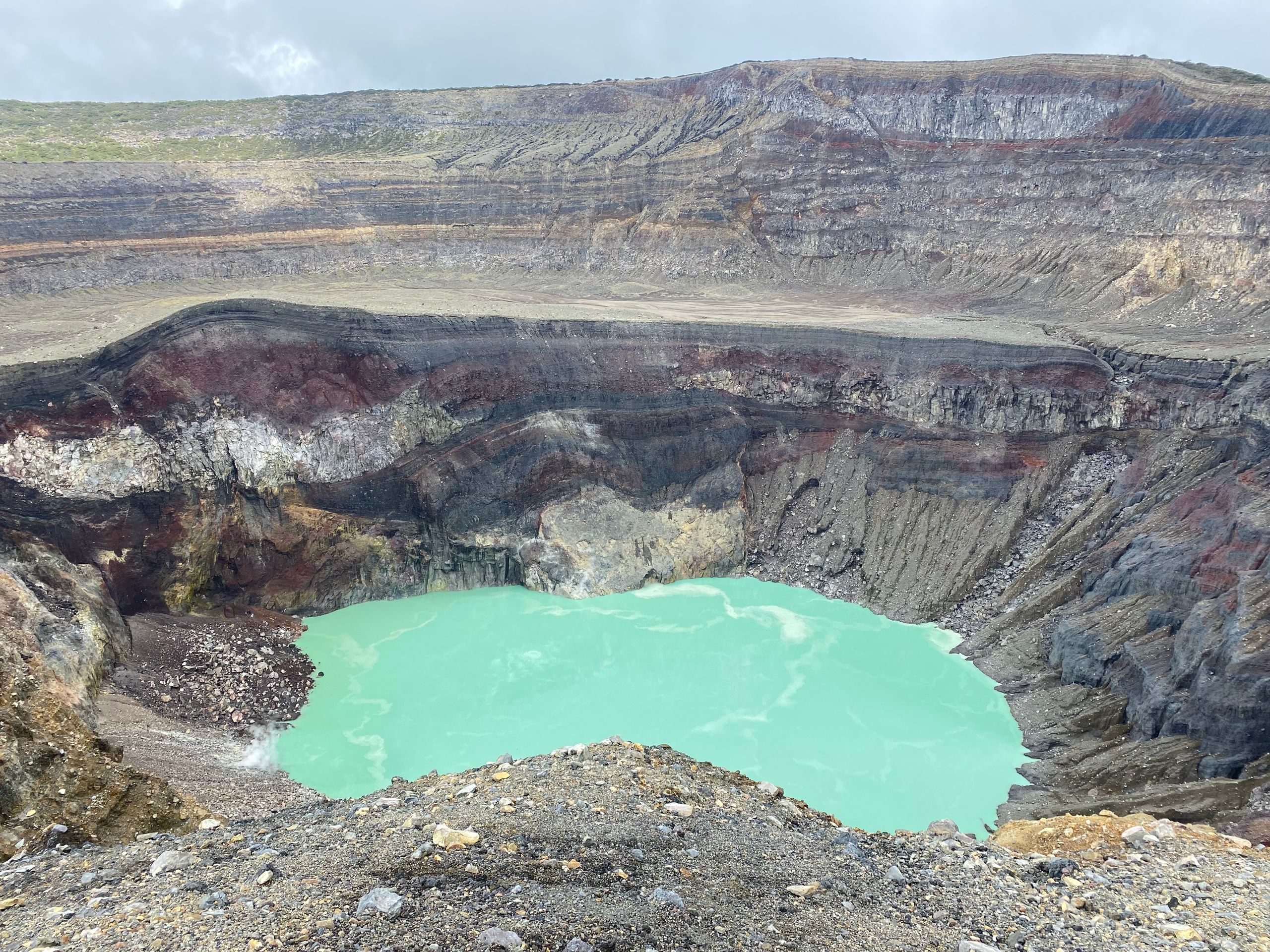
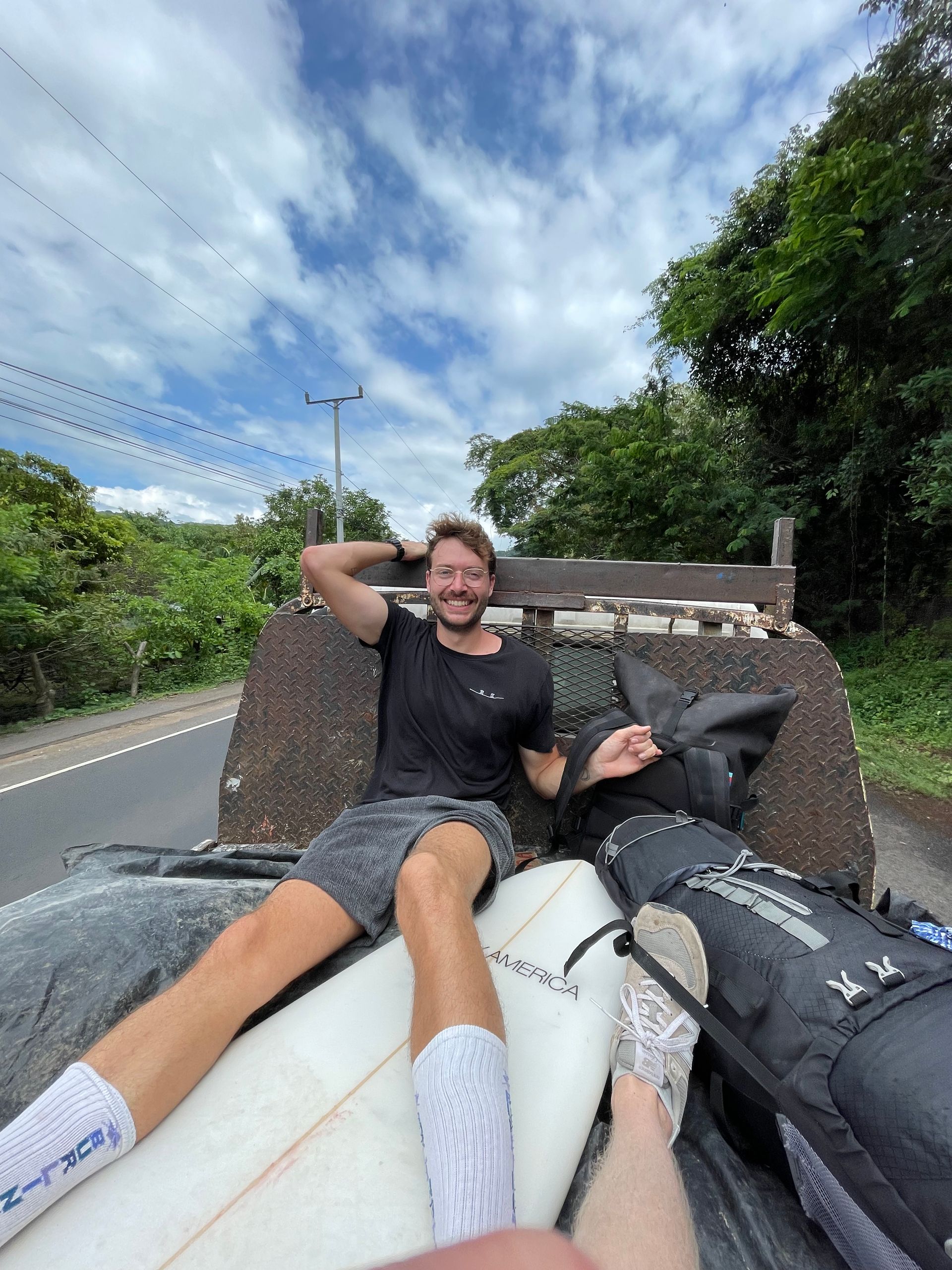
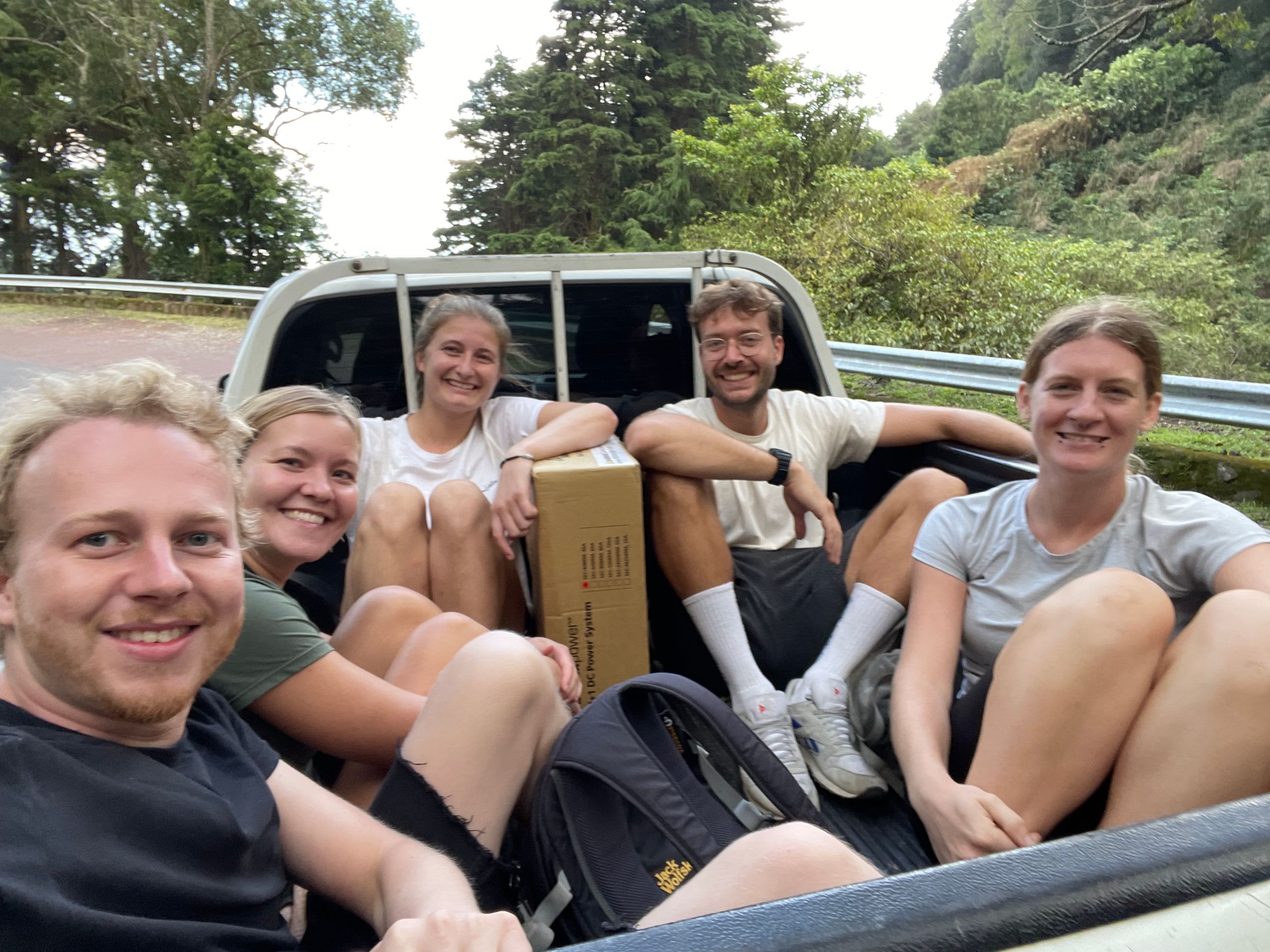
One day, we strolled through the old town with two friends, looked at the old buildings, looked for somewhere to have lunch, and bought groceries for our dinner. I actually made an appointment with a 55-year-old Spaniard who is counting his Spanish tortillas on his trip. He had taught me how to prepare a traditional Spanish tortilla according to his mother's recipe. We had a tapas night.
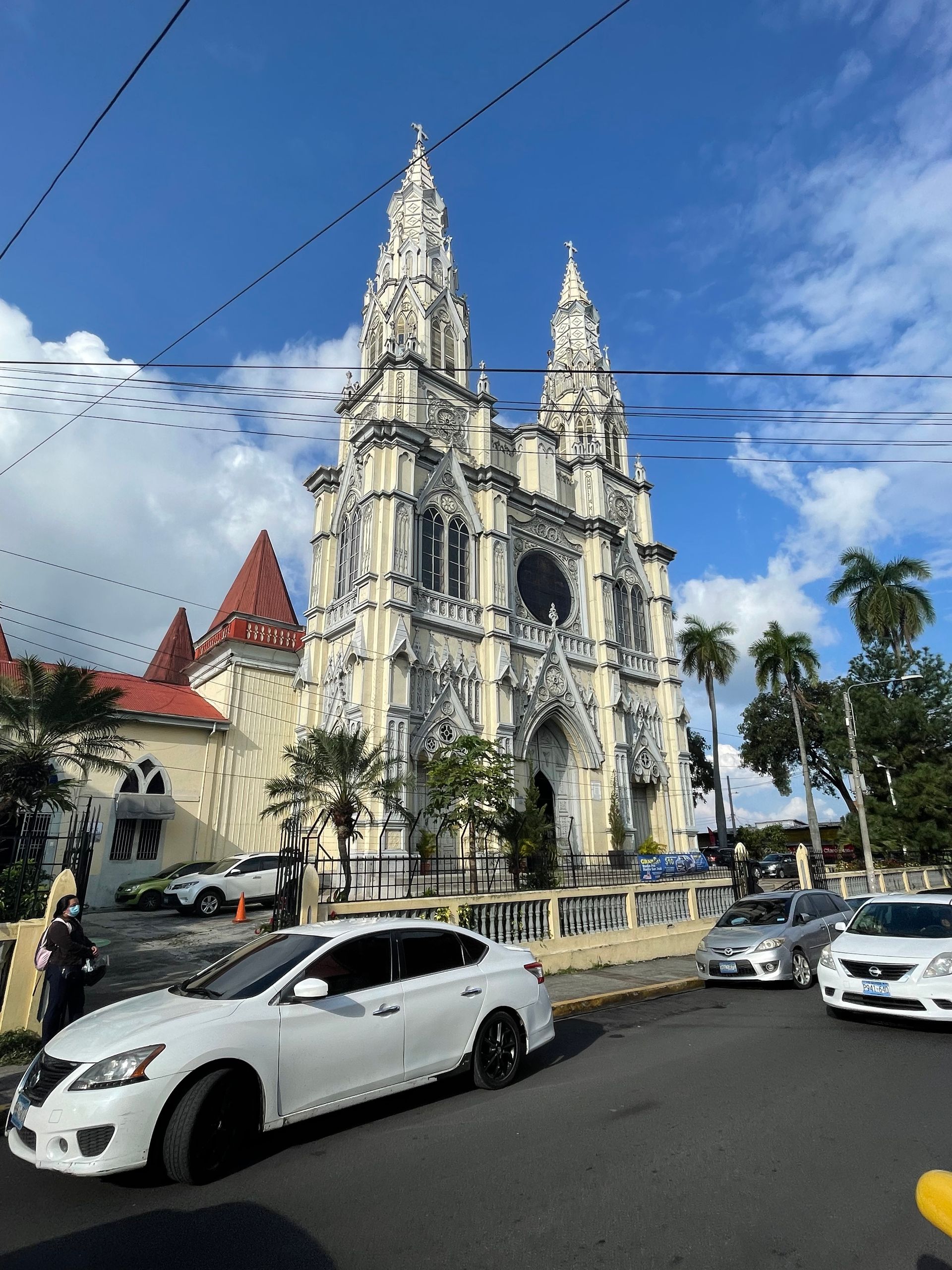
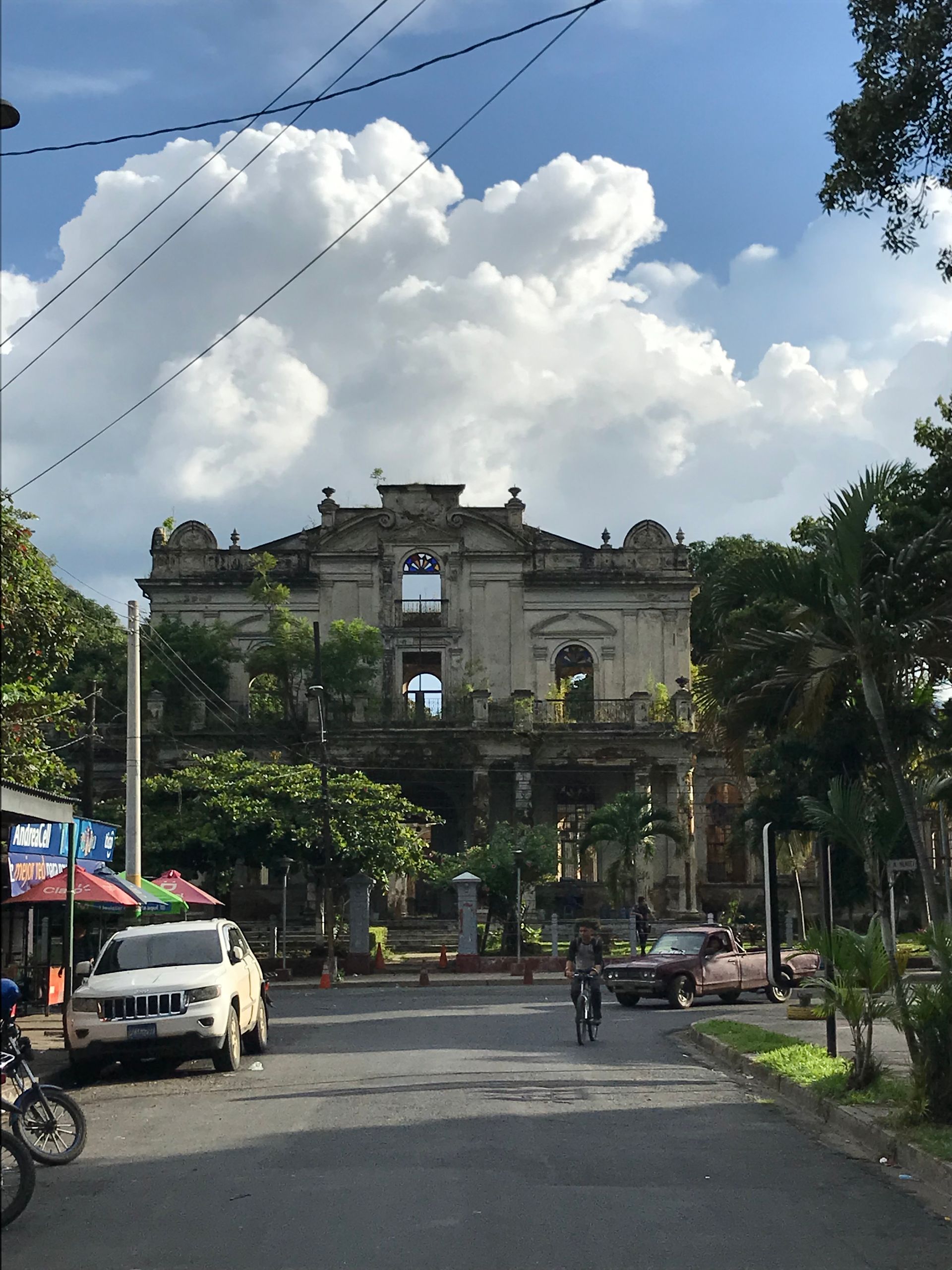
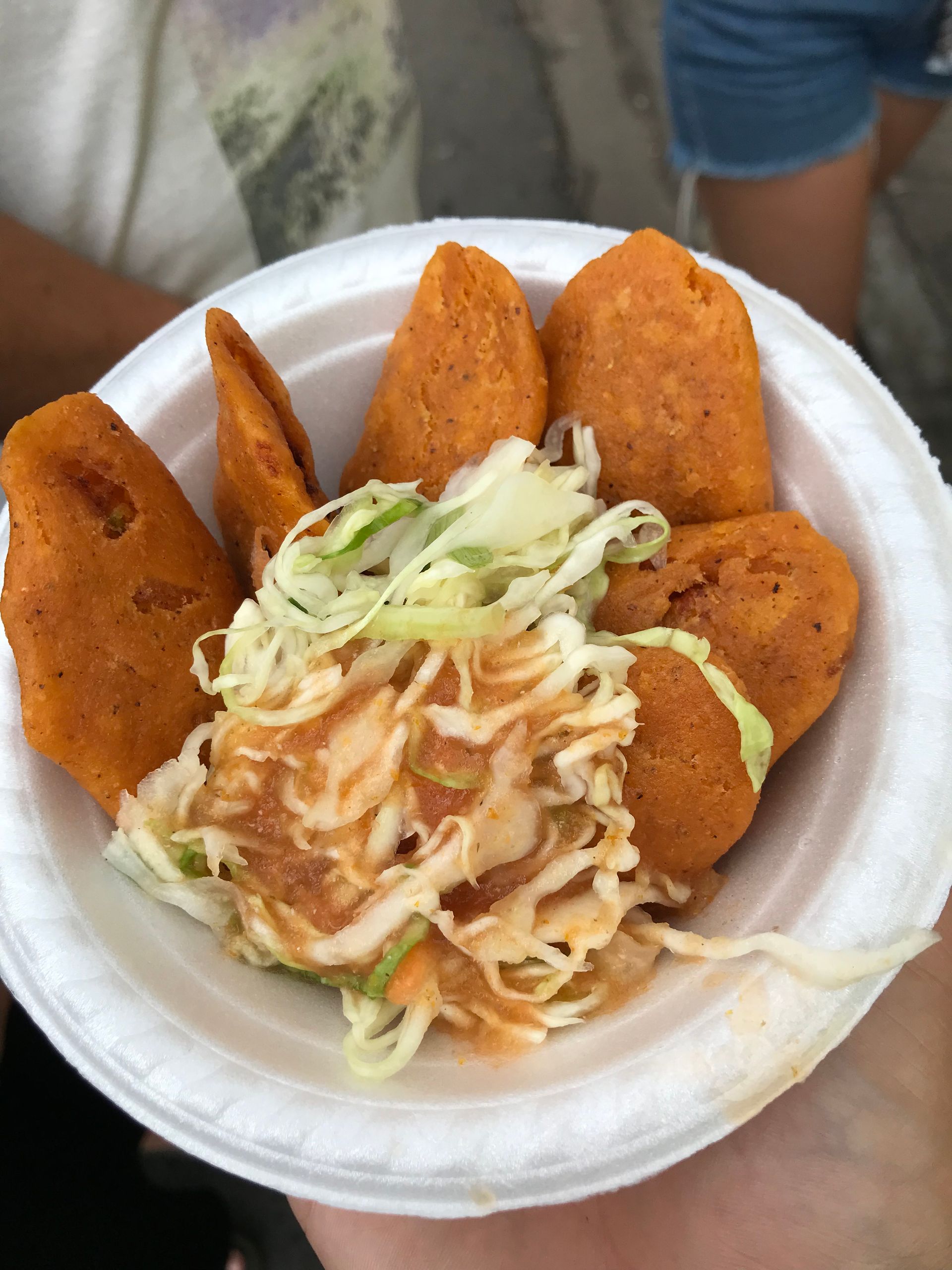
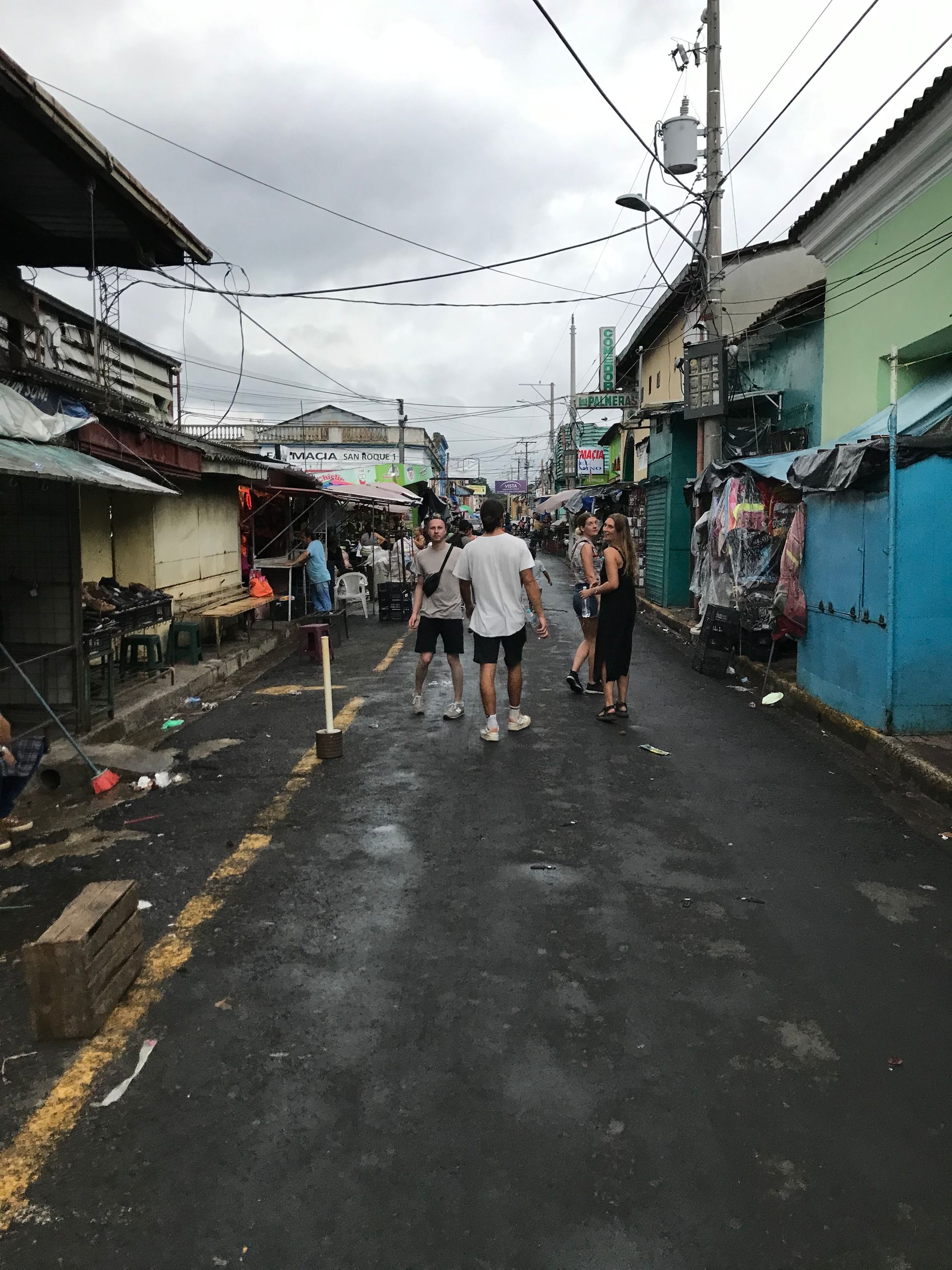
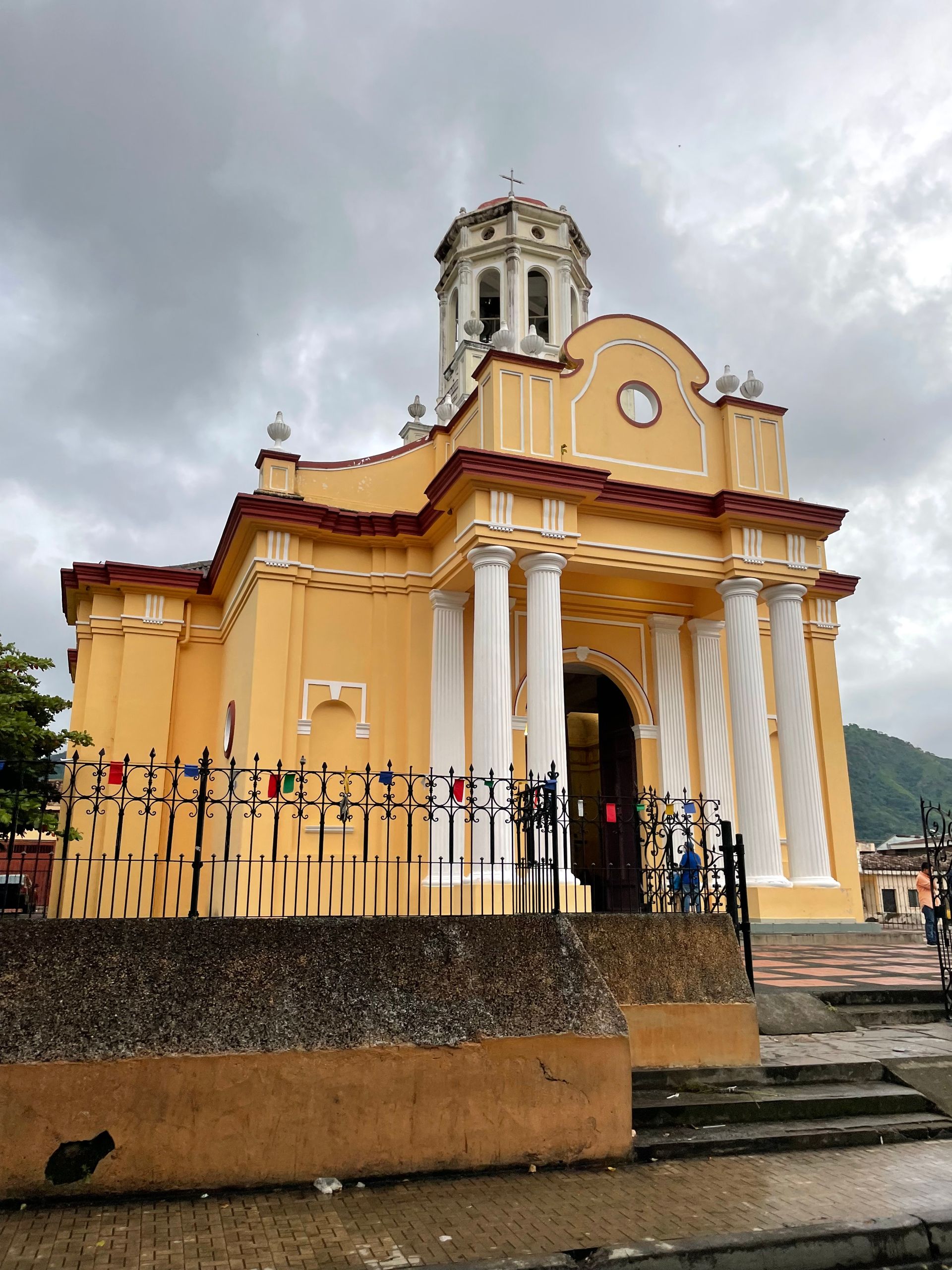
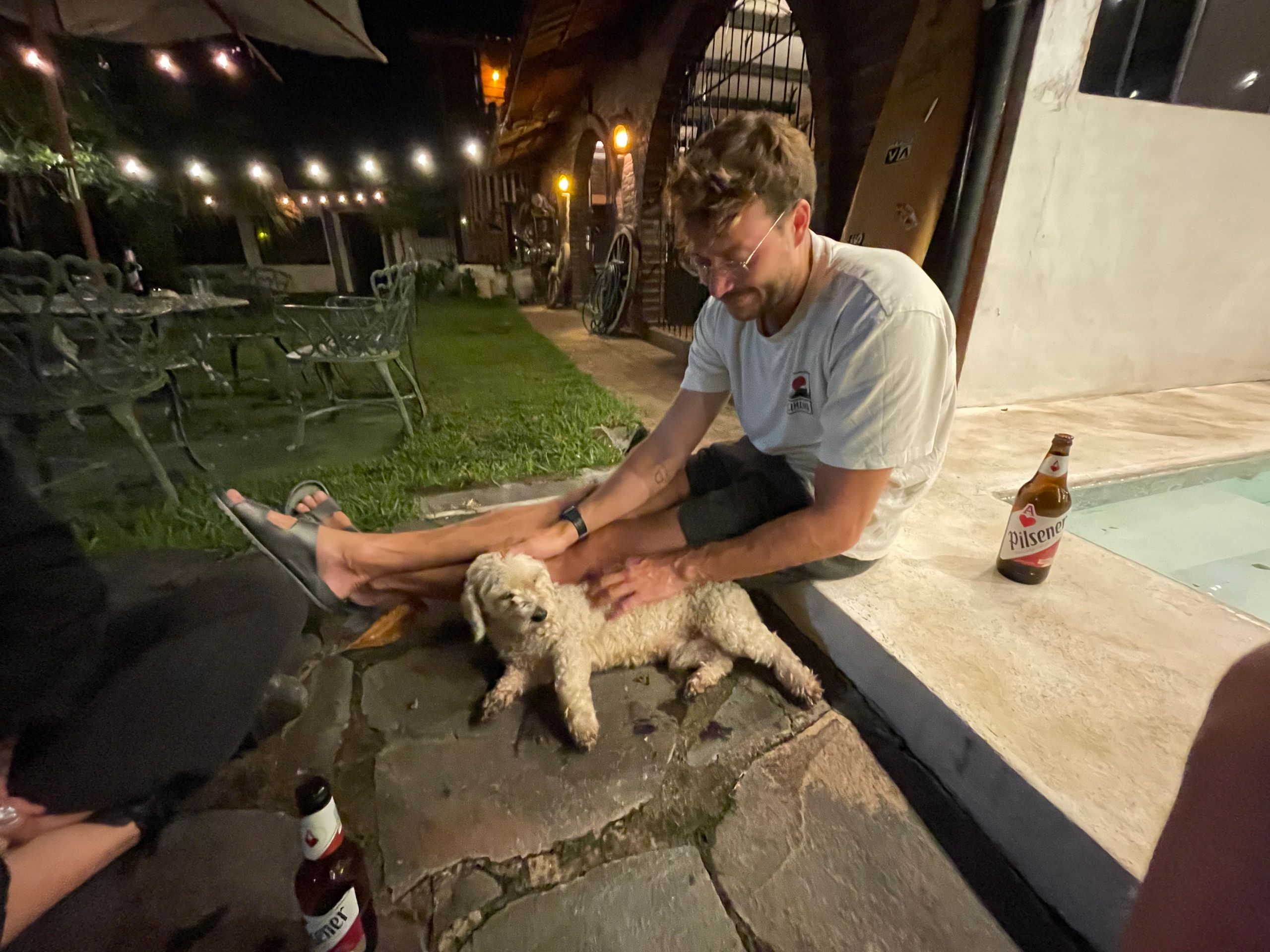
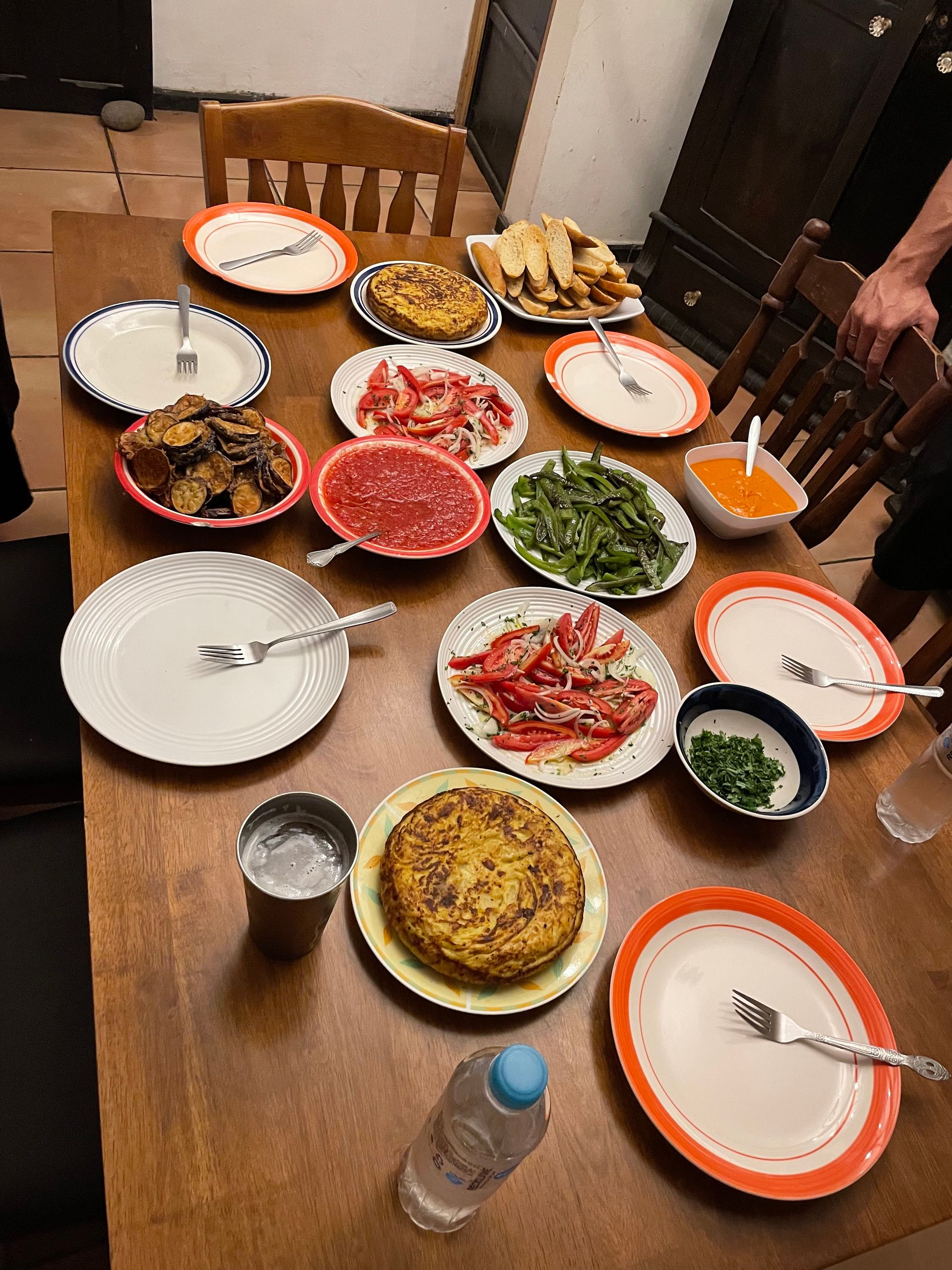
The next morning, we went to the Chorros de la Calera waterfalls, where we wanted to swim. Before that, we visited the village where there is a food market every Sunday.
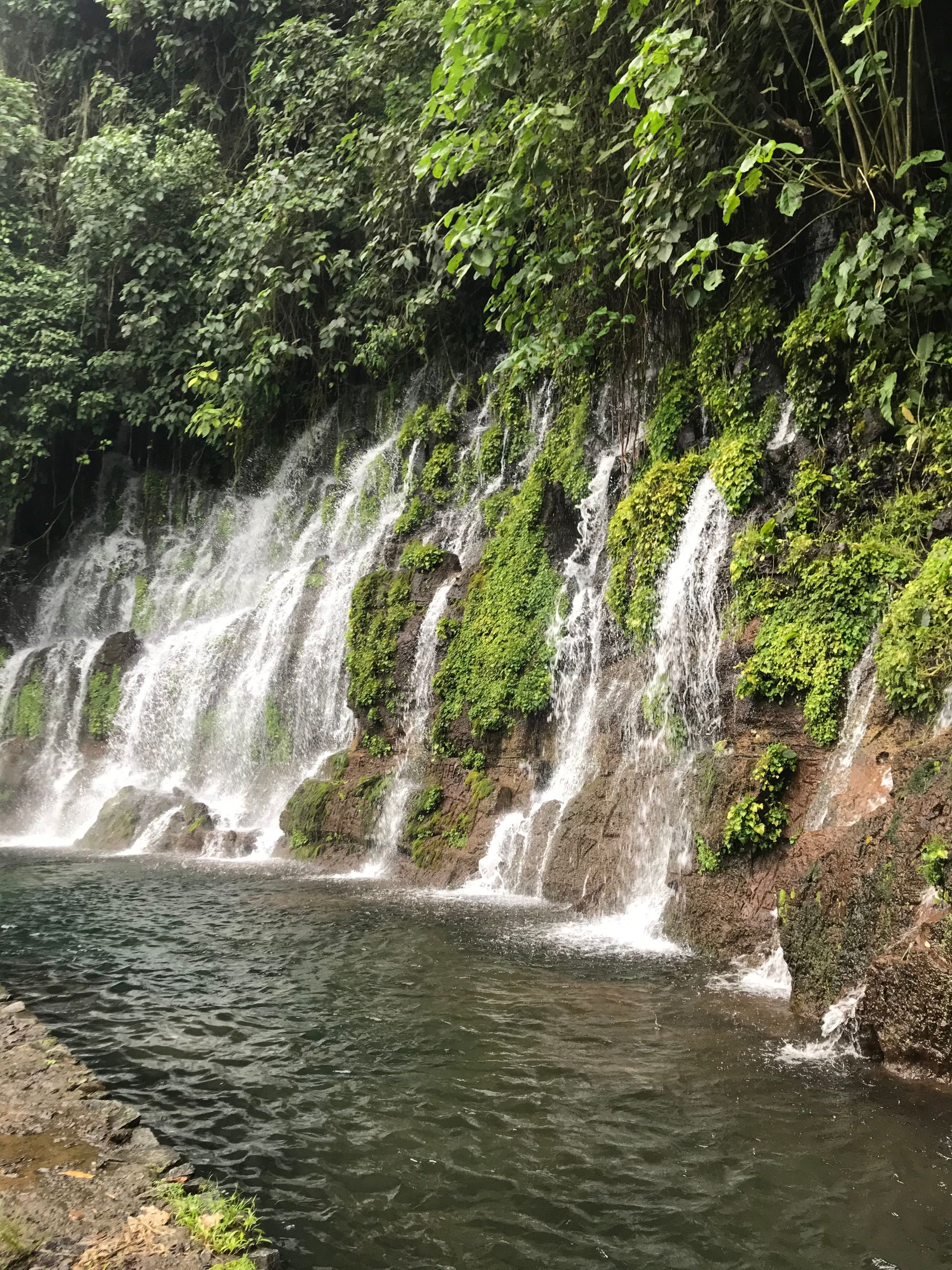
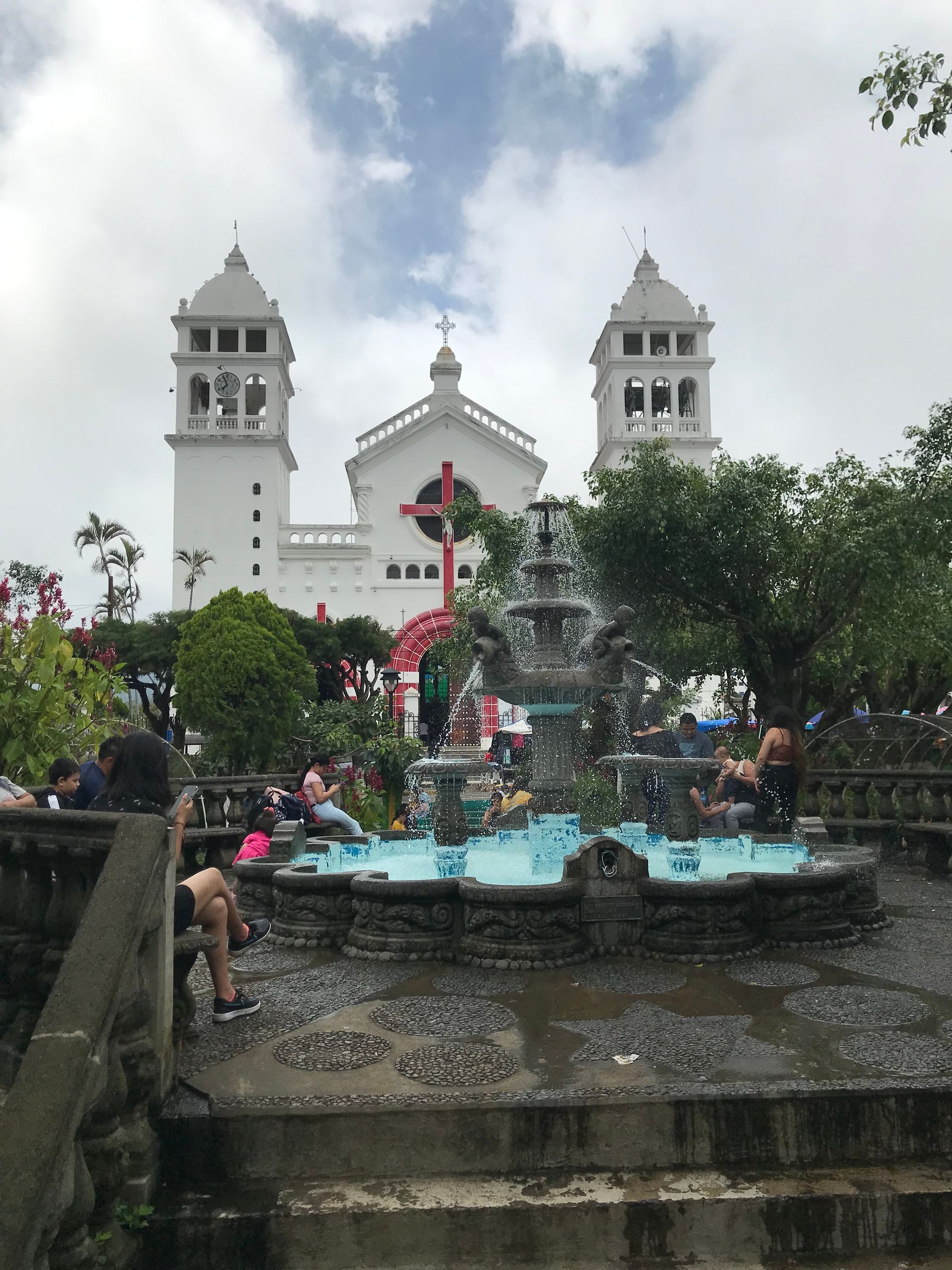
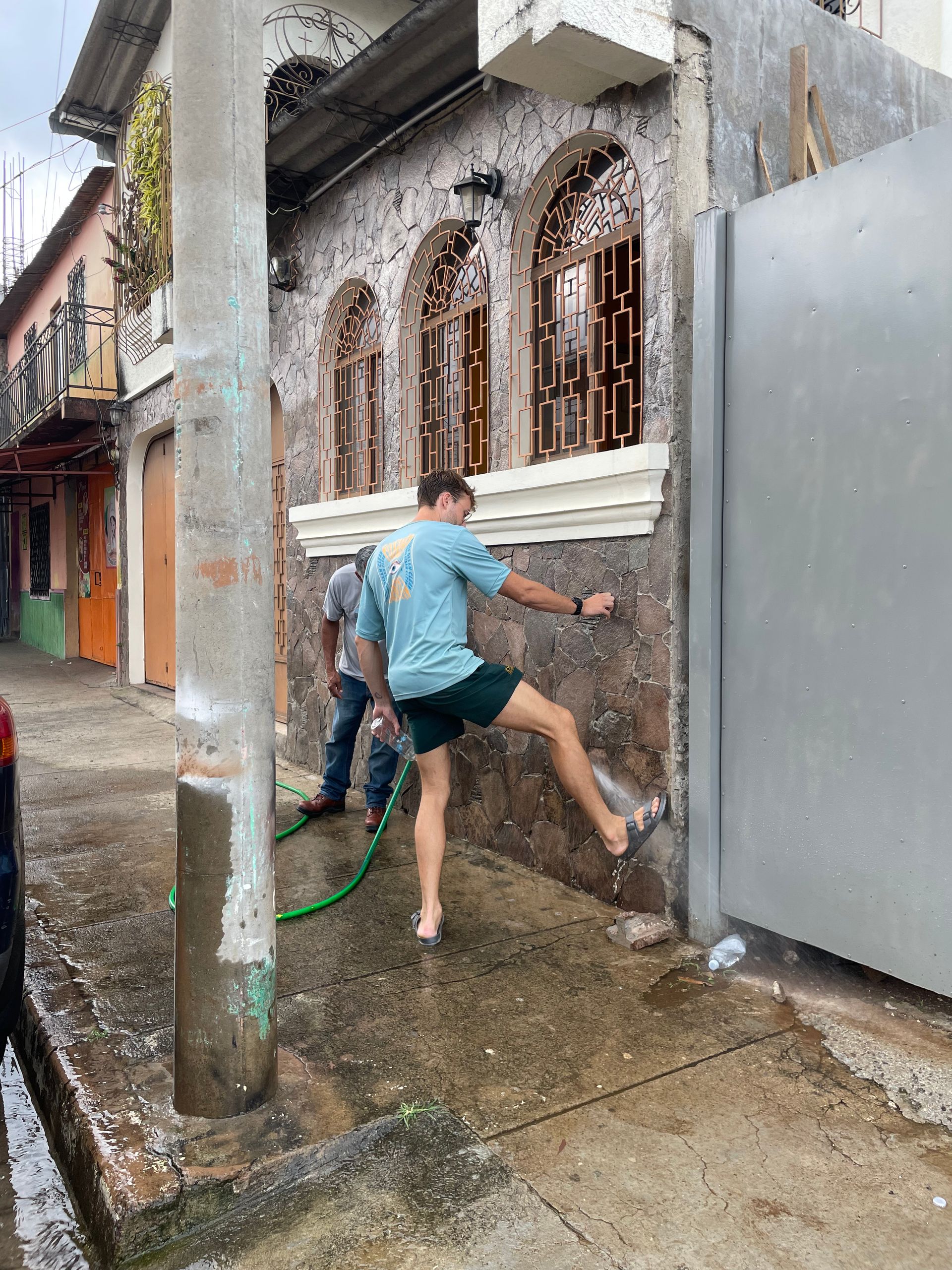
San Miguel, Las Flores, and La Union
Here I learned that you can also take power naps at 9 am. We are now in the south of El Salvador. After a short stop in San Miguel, we went to Las Flores, where Milena was waiting for us again, as she wasn't with us in Santa Ana. Here, we spent five days in hammocks and in the waves. Since we got up with the sun to go for a sunset surf at 5:30 am and our lives are so hard, we were already tired by 9 am and took naps in the hammocks. But the sun also set at 5:30 am again. The sunrises and sunsets here were amazing, as you can see in the pictures. We also had many nights with a clear sky where we could see the stars. Unfortunately, we had a night with very heavy rain, so the water came through the corrugated iron roof into our room. This ran down the wall onto the floor near the power switch, so we could have been electrocuted at any time. We asked for a room change, but it would have cost us money. When we then asked for a new mattress because Tino's was soaked, we were told that it was our problem. I have never experienced anything like this and we were really annoyed. Being German, we left a decent review :D By the way, Tino stayed in San Miguel for two more nights. Milena and I had no cash left, and we couldn't get any in the next two villages either, as the ATM was broken, the bank only gave money to locals, or you could only get cash with Bitcoin. So I paid with card in a restaurant for two people and received cash. We managed with $11 for two days. In El Salvador, the national currency was abolished and everything runs on the US dollar. Do you know that feeling you had as a child when you received a gift? I hadn't felt that in a long time, not even when I bought my mini projector for the trip or the surfboard. But I got to experience it again. I ran out of wax and it was also not possible to buy any in Las Flores. I was slipping around on my board. Then suddenly a man who had noticed this in the waves approached me and said to wait at the neighboring restaurant at 7 pm and that he had wax for me. When I arrived, he surprised me with three fresh packs of wax and ground base. I proudly and happily walked back along the beach at night.
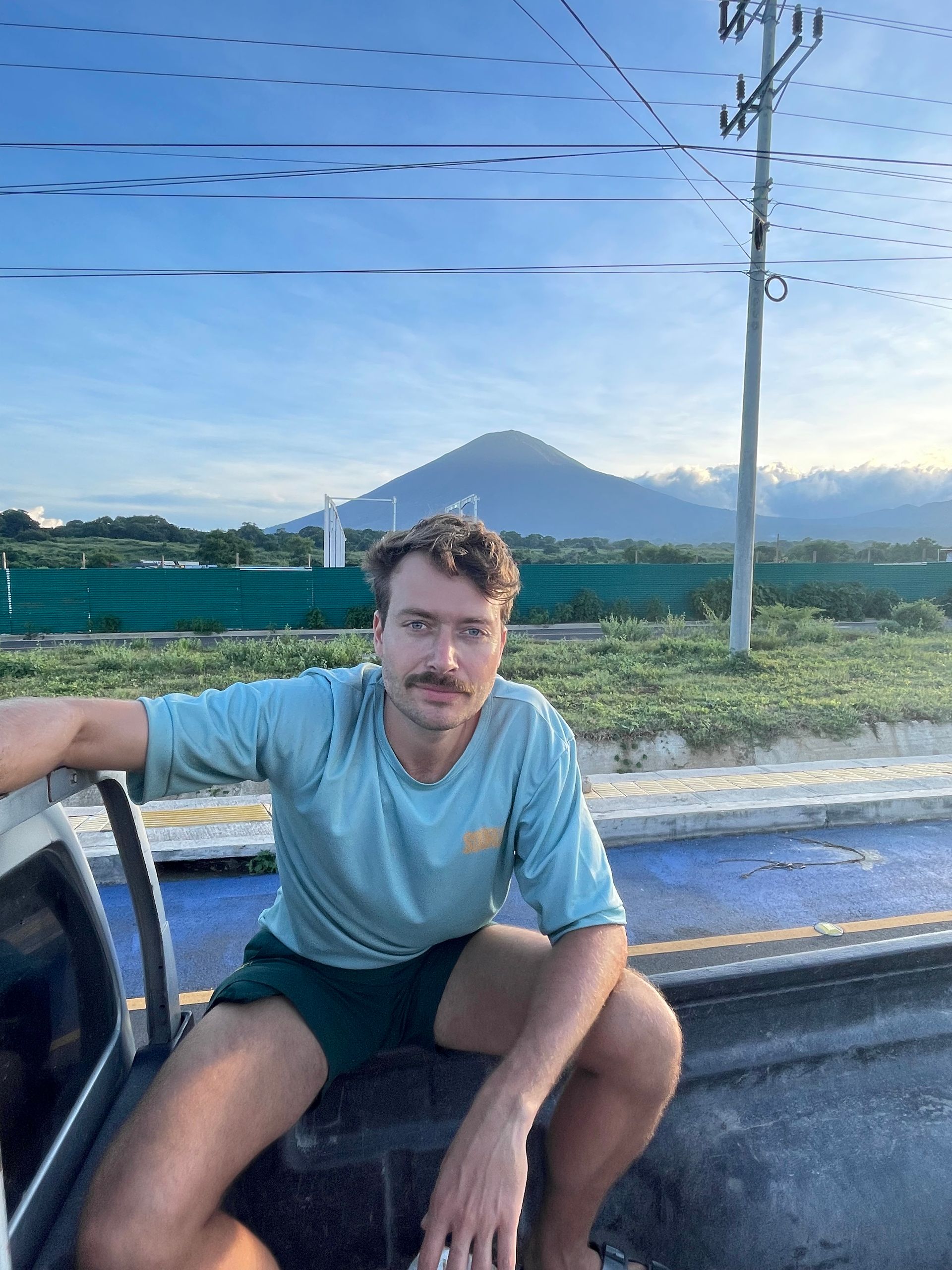

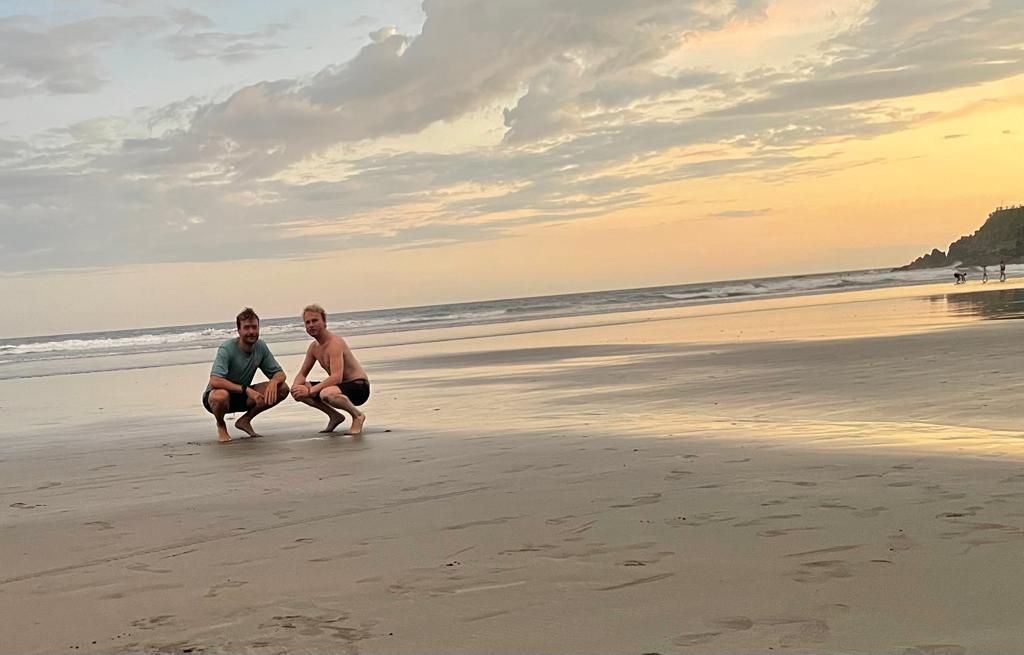
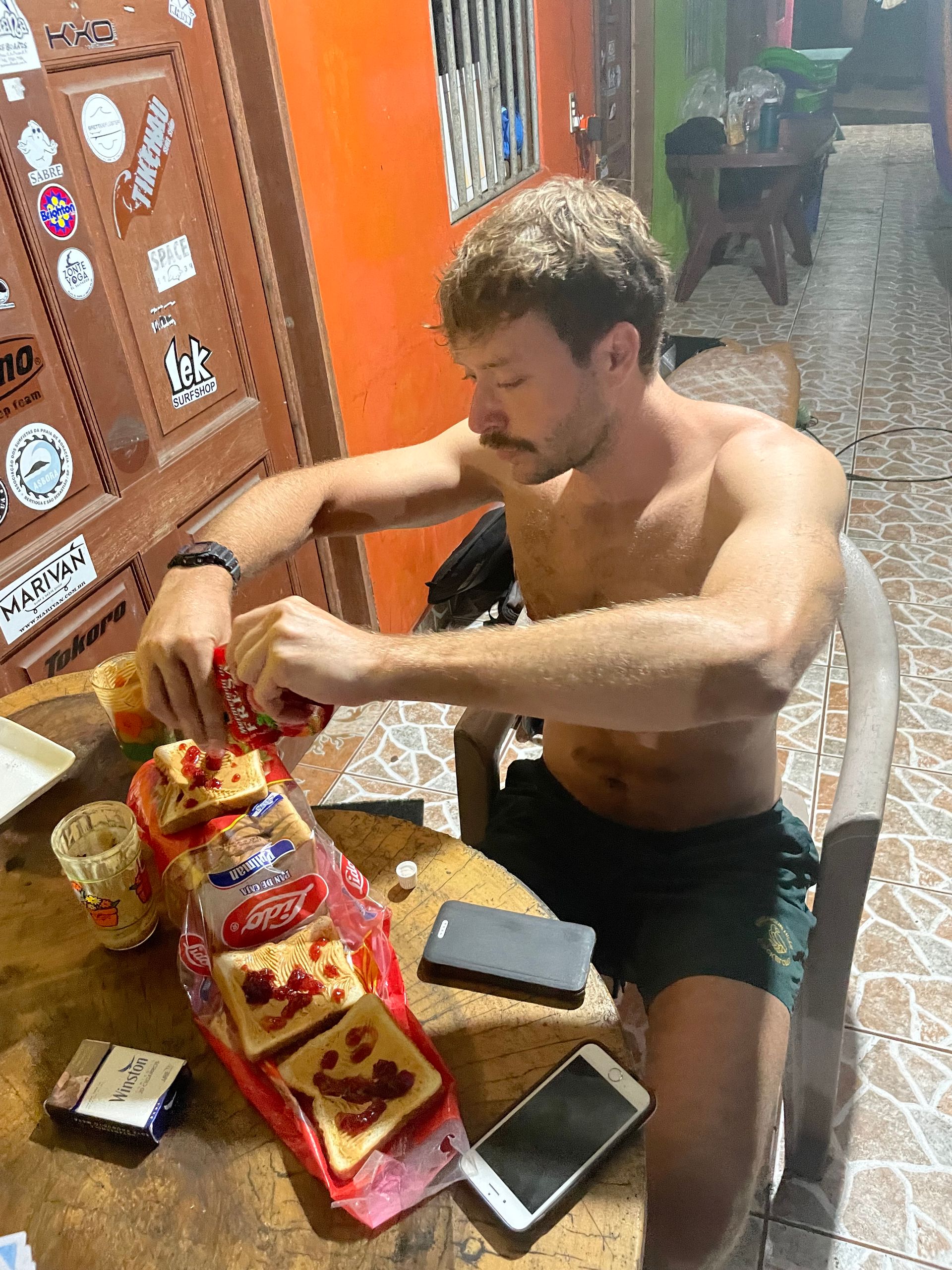
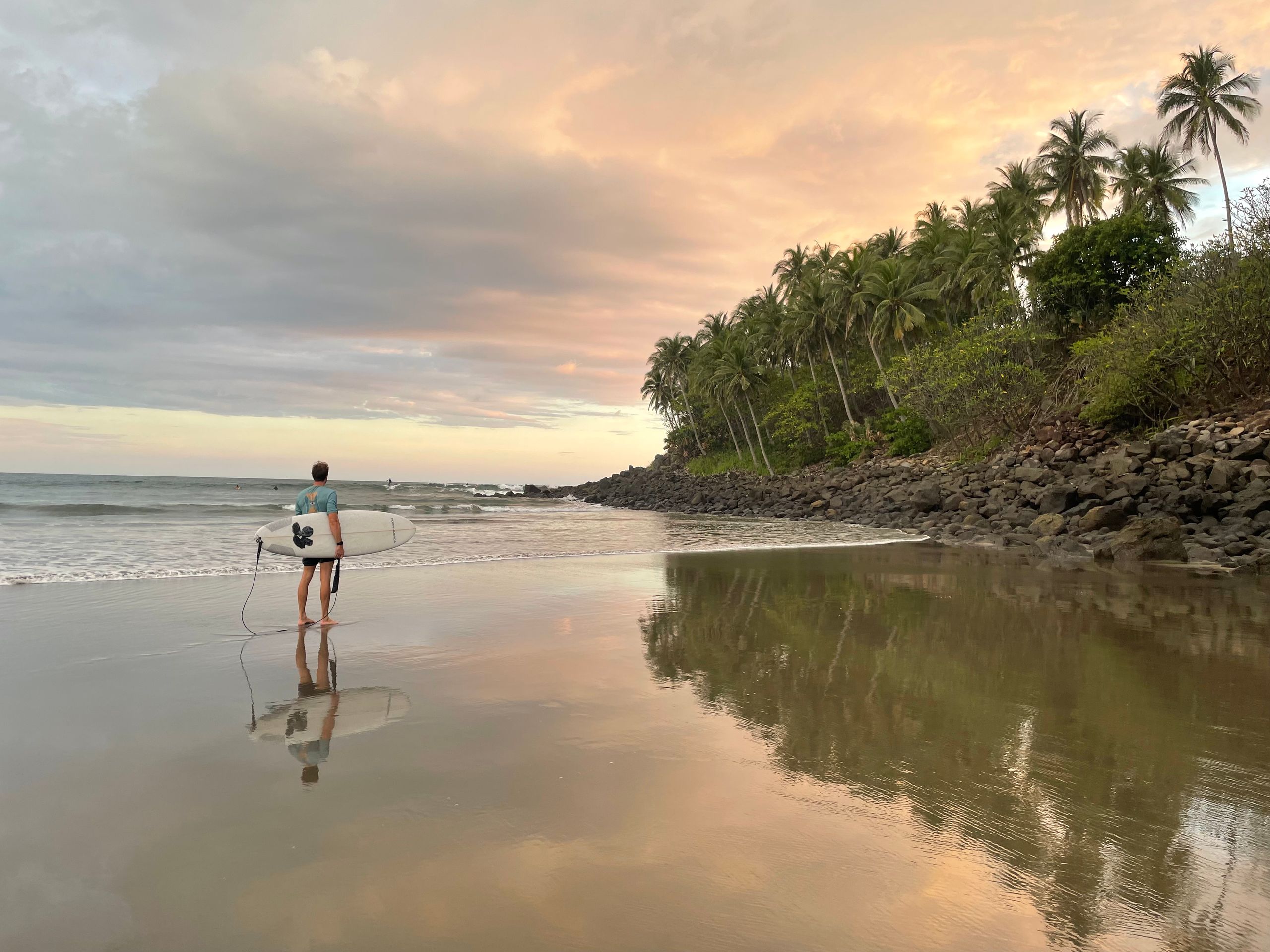
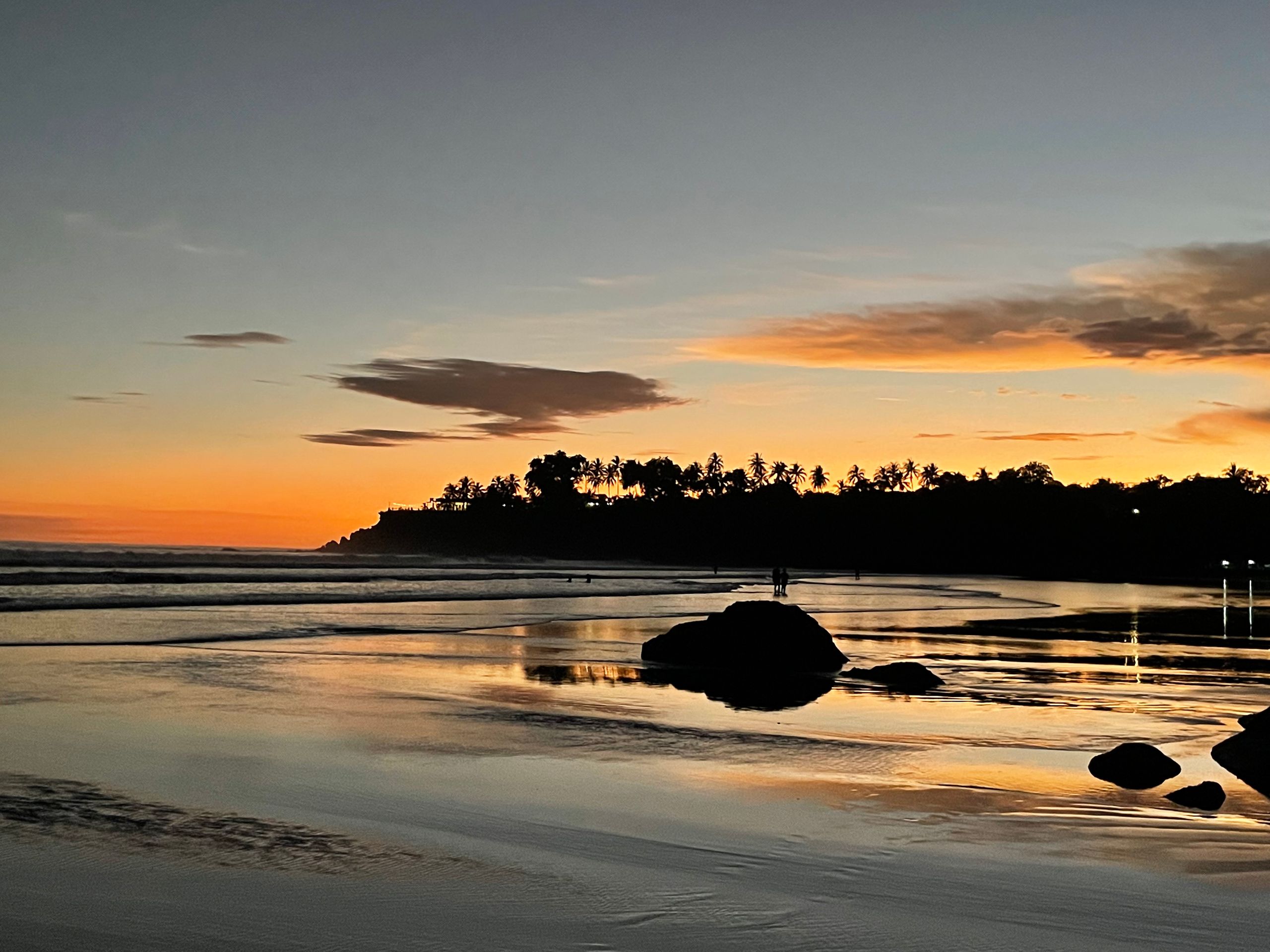
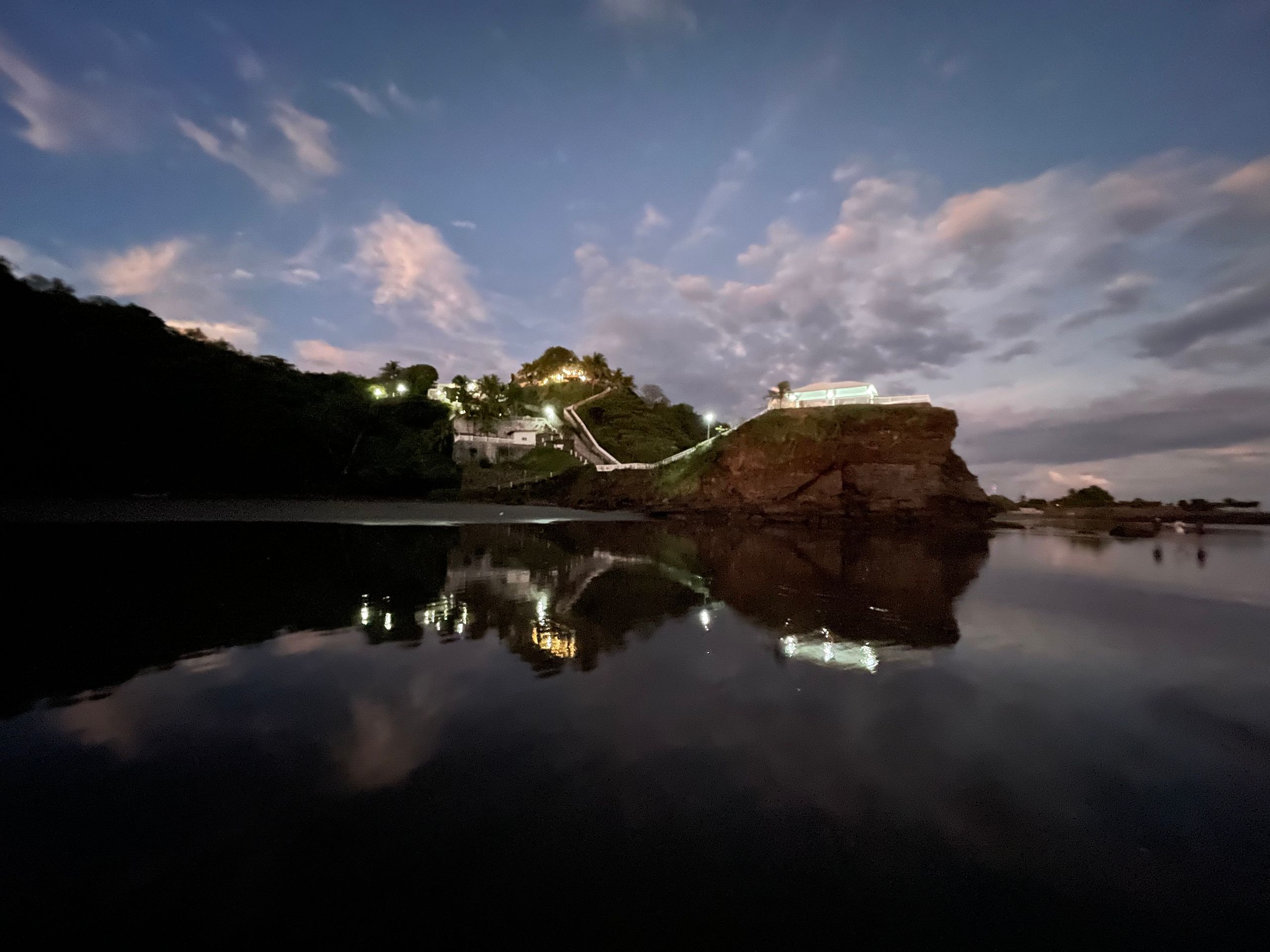
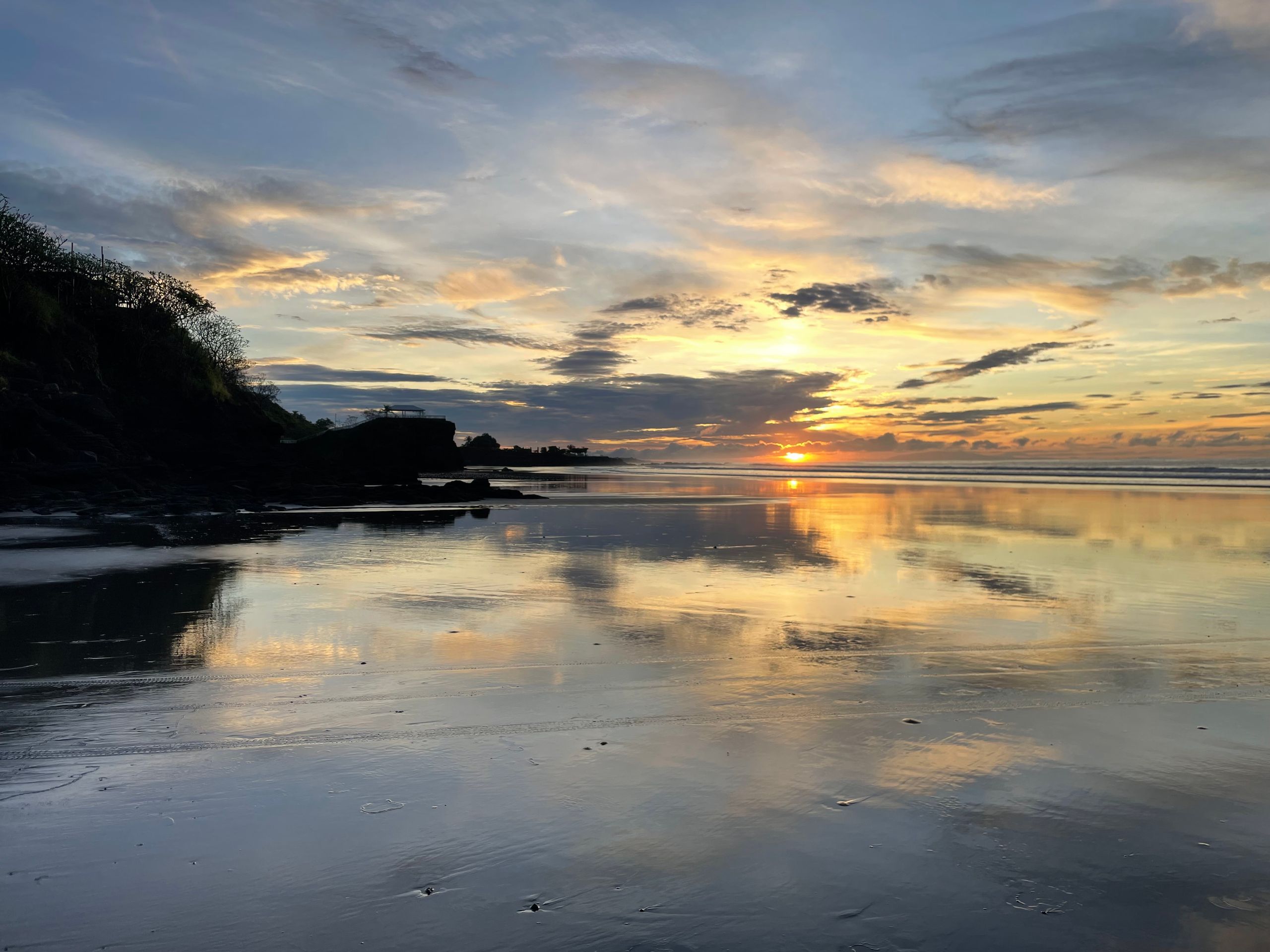
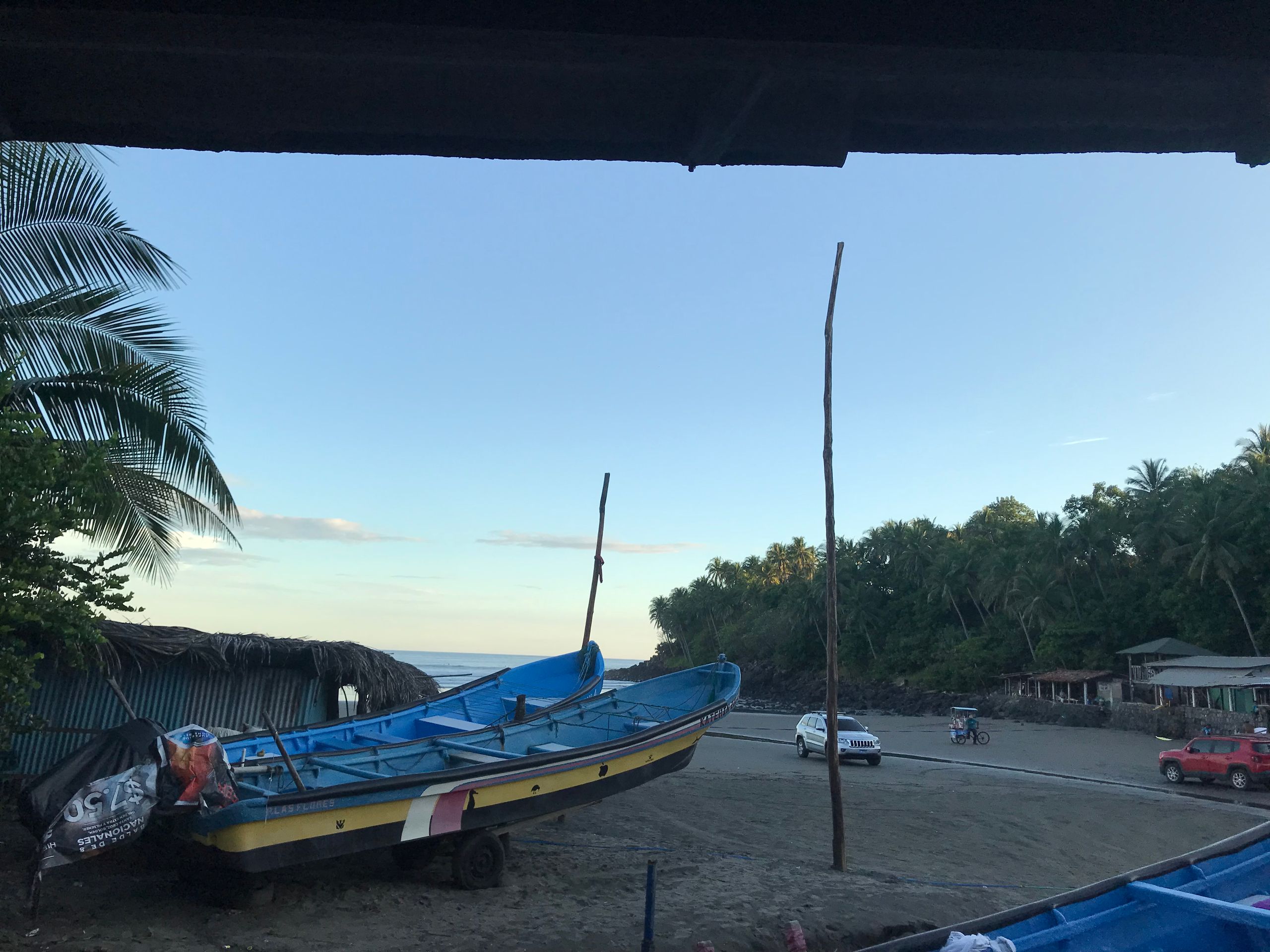
Okay, now here's the shit for me! La Union is a small coastal town that no one cares about. But exactly here is the Conchagua volcano that you can hike or get up to a camp in a truck. We did this and spent the night there. This gave us the opportunity to enjoy the sunset, the stars at night with a huge thunderstorm behind the sea, and the sunrise. The special thing about it was that from here you could see both the coast and islands of El Salvador, as well as those of Honduras and Nicaragua. The best view of the whole trip for me. We slept soundly in our hammocks here and froze our butts off, but it was definitely worth it.

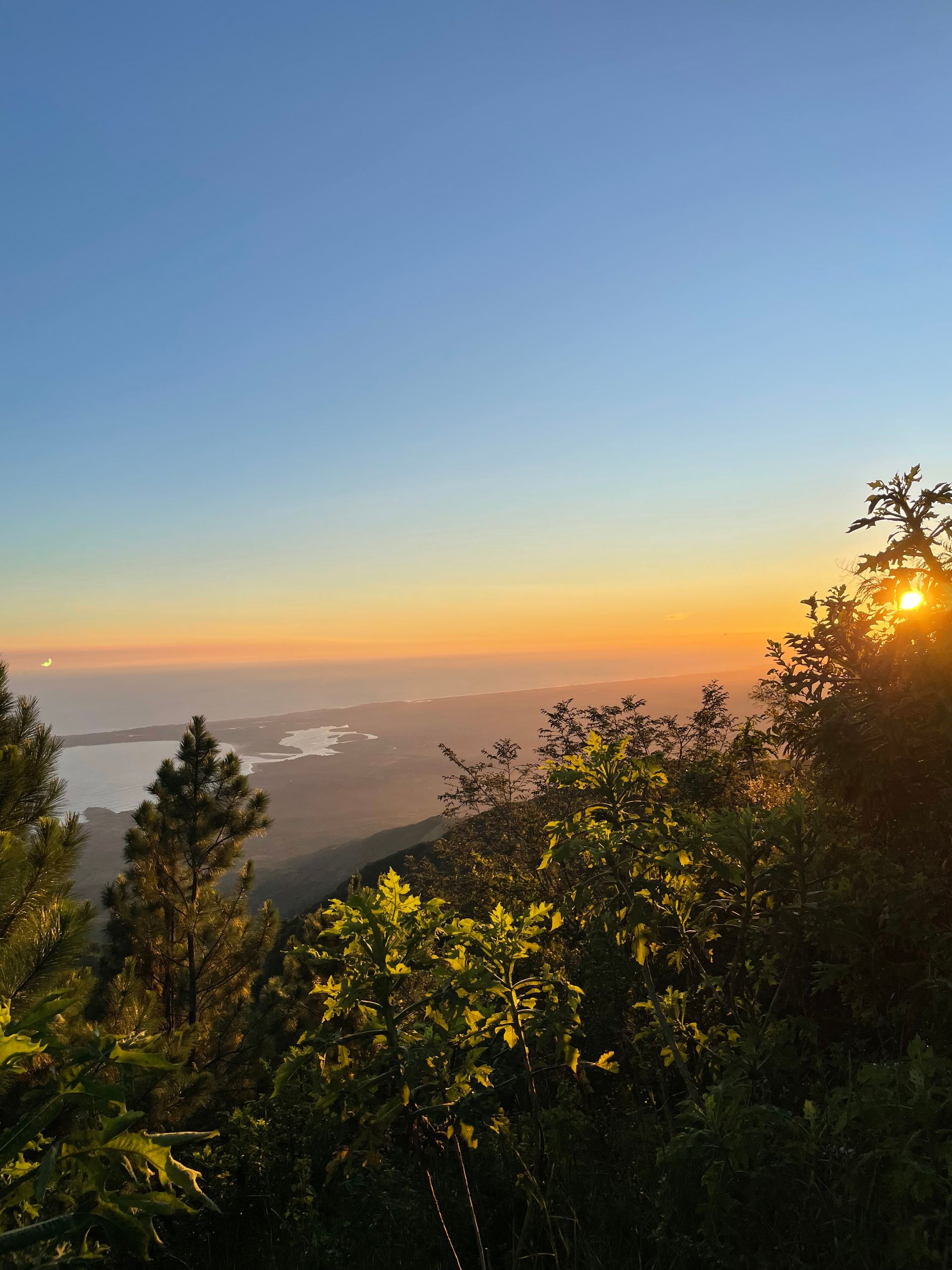
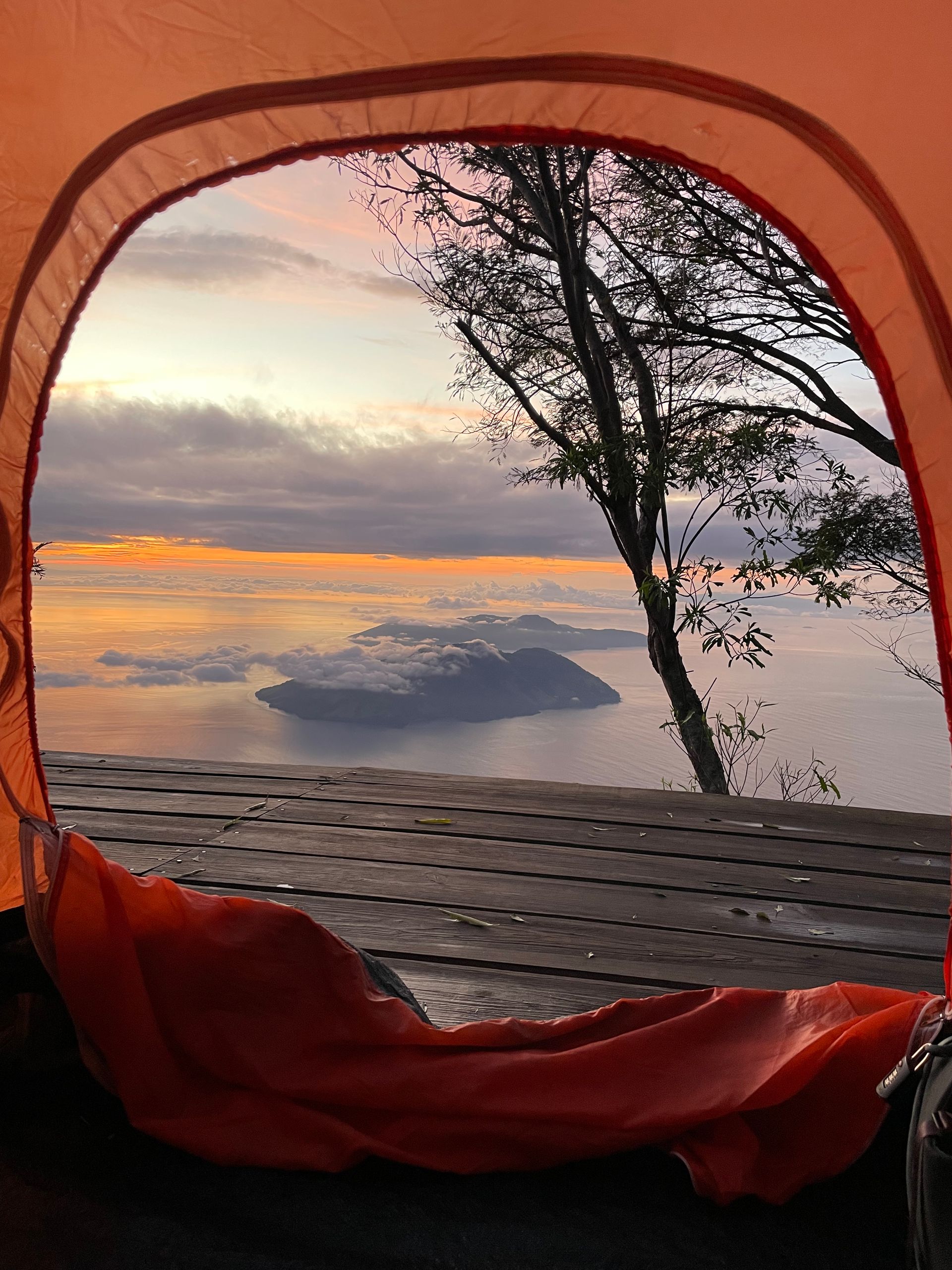
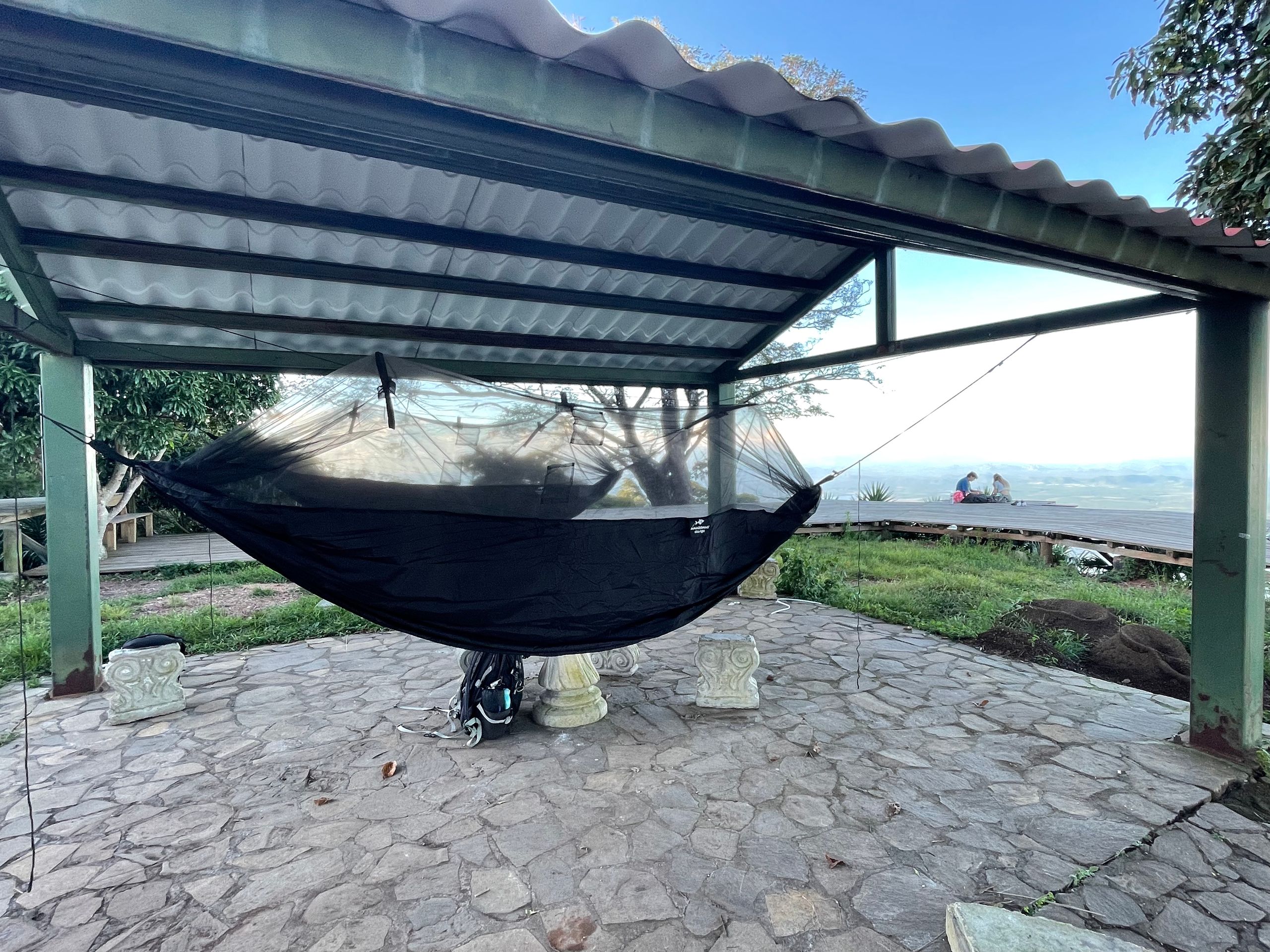
We hitchhiked so much that it has now become completely normal for us and has become our preferred mode of transportation. You can enjoy the landscape more, you have a sense of adventure, and you get in touch with locals very well. One realization is also that you have to be patient. We are usually picked up relatively quickly, but at certain points, you sometimes have to wait longer because there is less traffic or no pickups pass by. We usually move on the back of the pickups, since I can put my board there and I can make sure it doesn't fall off.
Next stop is Honduras and then Nicaragua. The goal is to hitchhike everywhere. See you soon, you rascals!
S'inscrire à la Newsletter
Répondre
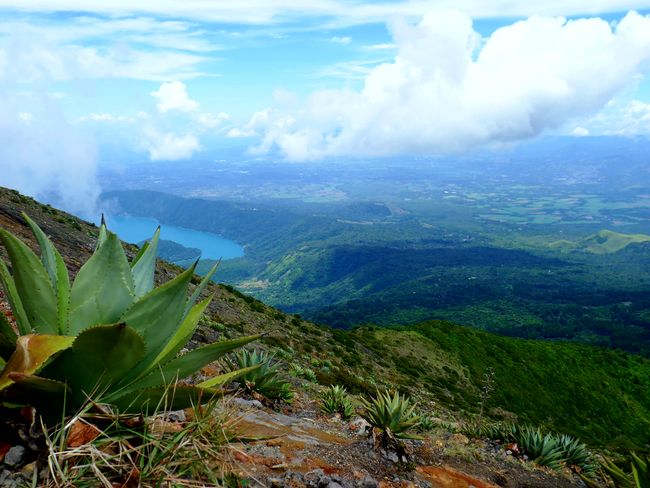
Rapports de voyage Le Salvador
